#additional analysis
Text
Eunuchs, Value, and Appearance– Brief Thoughts on Beauty and Gender in The Apothecary Diaries Manga Volume 1
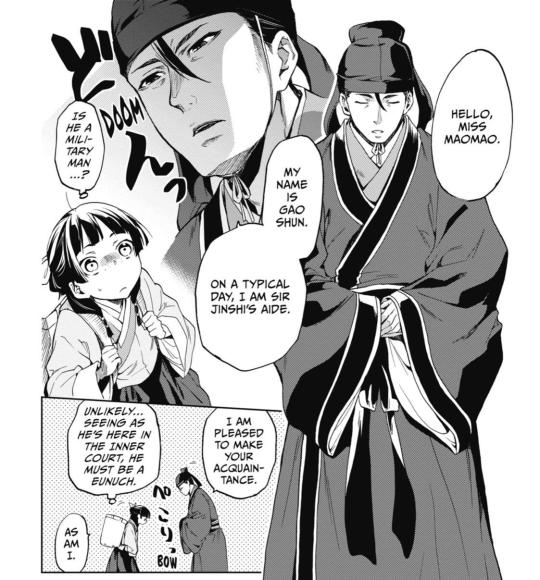
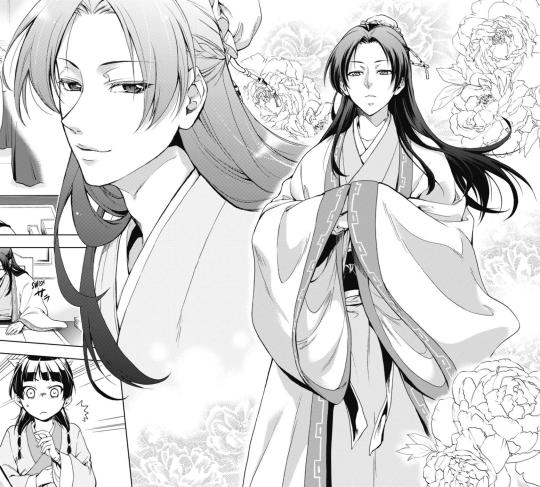
This is an offshoot of my thoughts from Ch. 4 of the manga, but it also connects greatly to Ch. 1, so a brief recap of where these thoughts sprung from:
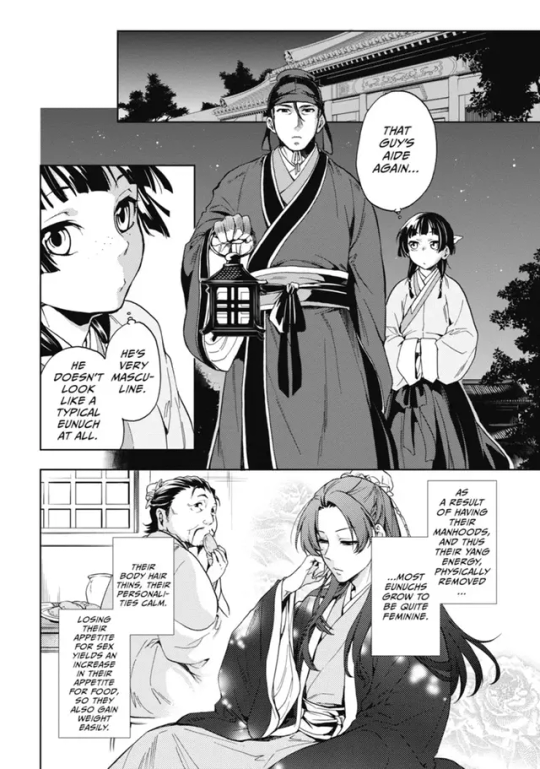
As Maomao and Gaoshun go to investigate the "ghost" dancing on the palace wall, Maomao again reflects that Gaoshun doesn't look like a typical eunuch. Her first instinct upon meeting him was the classify him as a "military man" but because he was in the rear palace, he had to be a eunuch.
Meeting again, she thinks he looks "very masculine" and not "like a typical eunuch at all." In this moment, we get another example of Maomao's understanding of and perspective on eunuchs and gender being challenged. Or do we?
A product of her time and background, Maomao has a very specific and somewhat rigid way of thinking about gender. I think that perspective ebbs and flows, but it is very much informed by the outline provided to her by the society she exists within.
Sometimes, what first appears to challenge the constraints of that outline actually works to reaffirm it.
Gaoshun appearing more masculine and like a military man is not presented in the story to challenge a bias but it is Maomao's first clue that something else is going on with Gaoshun, that there's more to the story. It is not a purposeful reflection on gender by the author but a purposeful piece of a puzzle Maomao is solving within the story.
The same thing happens later when Maomao inspects Jinshi's body and sees it is more muscular than a eunuch's would be. Without further investigation, the presentation of eunuchs that don't fit the stereotype challenges that stereotype, but the truth of the matter actually kind of relies on and reaffirms those stereotypes. Gaoshun isn't just a eunuch and wasn't always a eunuch. Jinshi isn't a eunuch at all. If they didn't seem like regular eunuchs, it's because they are not.
[And if we flash forward to how another character is addressed–Maomao observes that Ah-Duo appears more masculine than feminine, which reminds her of Jinshi. Seems like a great challenge to gender norms, but then Maomao's bias/the binary is reinforced by the fact that Ah-Duo's womb was removed. Jinshi is castrated, thus more feminine and Ah-Duo had her womb removed, thus more masculine. Or so it seems to Maomao...]
And yet, just because these moments weren't included to say something about gender, it doesn't mean that nothing on that topic is being said. And the fact remains that Jinshi isn't actually castrated/a eunuch! So he works to both reinforce Maomao's views on gender and challenge them. Though he isn't actually a eunuch, he still appears very feminine. That is, arguably in part due to the drugs/forms of suppression he uses to assume his eunuch persona and operate in the rear palace, but even without those measures, Jinshi still possesses a great "feminine" beauty. He is sort of a contradictory figure in that sense.
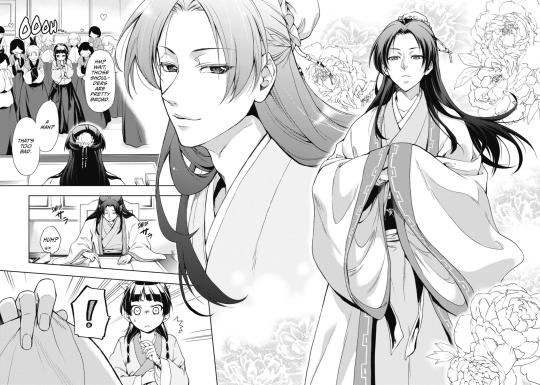
With that, I wanted to circle back to something I noted in chapter 1. I noted that Maomao is "disappointed" when she realizes Jinshi is a man and that his beauty is not possessed by a woman. I thought of this point as contributing to the conversation around gender and around beauty within the story.
I also put a pin in the idea of how Maomao values beauty and recognizes how beauty gives someone value and specifically how Maomao views beauty as it relates to Jinshi–a waste on a man, disastrously powerful on a woman, extra wasteful on a man sans frog (aka castrated).
These fuzzy reflections got some great extra translation-related context from @amiriirish (thank you for that!), specifically regarding the line "A man? That's too bad," Maomao's thought when she realizes Jinshi isn't a woman. A more accurate translation would be "A man? What a waste" or as it is written in the GX version: “'タマナシだけどな…もったいない' which roughly translates to '(He) doesn’t have balls, though. What a waste.'"
I love how @amiriirish describes Maomao's perspective in this moment as one of "a scientist, not wanting to see good genes go to waste" as within the historical context of the setting, a person's purpose is to get married and have kids/keep the family line going/pass on their genes. Jinshi being castrated means he won't be able to produce any beautiful children and so his beauty is going to waste by not being passed down.
I was pretty vague in my initial thoughts, but I meant to sort of hand-wave at these ideas (albeit in a much less articulate way) and though I do think Maomao's sexuality is another interesting conversation (and I personally favor the interpretation of her as on the asexual + bisexual spectrums), I didn't mean to highlight Maomao's attraction to Jinshi during their first meeting but rather her recognizing his general attractiveness and beauty. Love bi Maomao, but I don't actually think she was attracted to Jinshi at that moment. Like with her view of the "wastefulness" of his beauty, she is looking at him like a scientist/as more of an observer than participant.
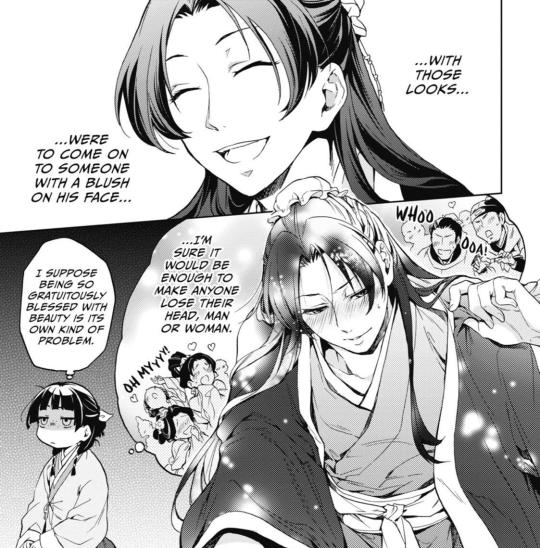
Maomao's introduction to Jinshi is the beginning of her generalizations about his beauty and how she positions herself as an outsider in those generalizations. Anyone would be attracted to him but that anyone does not refer to her. At least not yet.
Instead, I was thinking of Maomao's disappointment at Jinshi being a man rather than a woman as a reflection of her upbringing in the pleasure district and her familiarity with female beauty specifically.
We don't get a lot from Maomao about beauty or handsomeness in men. Or when we do, she seems even more removed from it. Like it isn't really worth noting. I think this is because she has learned how beauty can function as a sort of currency or tool for women.
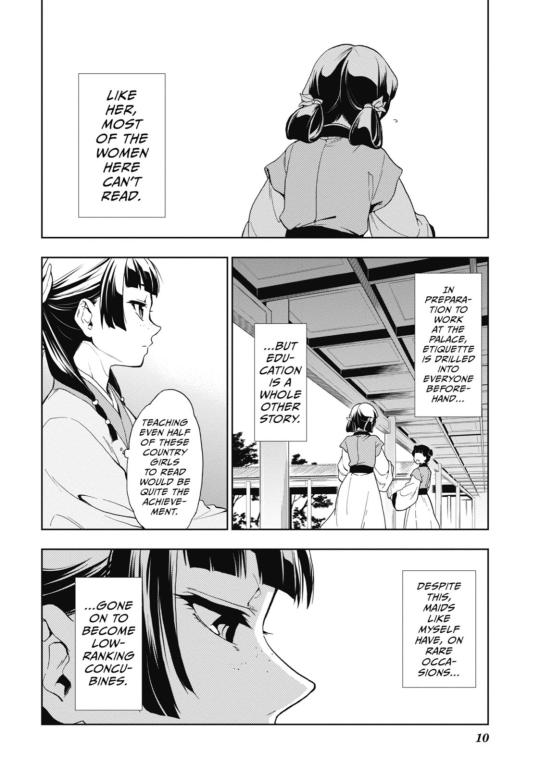
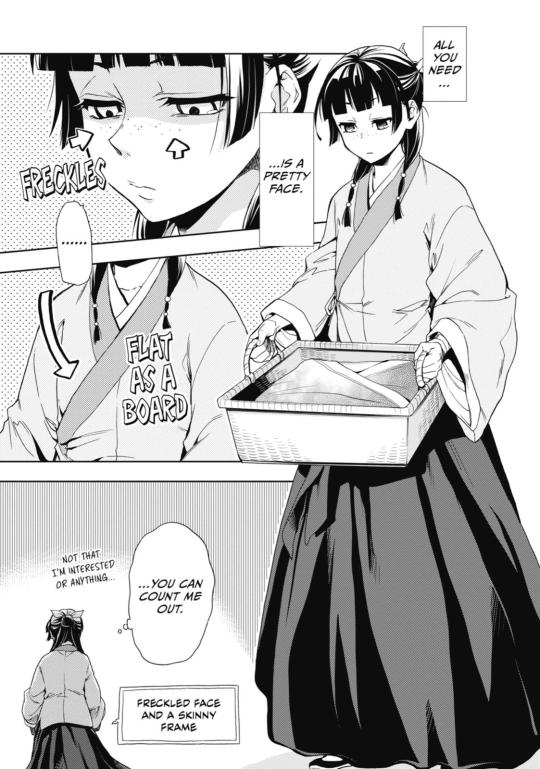
Even in the very beginning of chapter 1, Maomao reflects on how a "pretty face" (and a voluptuous body) can lead to a woman rising through the ranks.
@teaflowsthroughthesesims discussed this further in some awesome expanded thoughts:
"In the circles [Maomao] runs in beauty is power, or a means of obtaining it, mostly but not exclusively for women. In her view, it's fitting that the powerful be beautiful, and expected that it be used as a weapon or tactic of controlling others.
Beauty is also tied up in desire towards others. The desire of a customer for a courtesan is due to beauty, the desire of an emperor for a concubine naturally falls on the lovely ones -- and [Maomao's] own undesirability is tied up in her lack of beauty (i.e chicken bones vs. abalone)."
"This is why she immediately sees Jinshi's flirting as a tactic - beauty is a tool to be used. Also, she chooses ways to describe Jinshi's beauty in terms of how it would control other people - 'a nation-toppling beauty' or 'a sex appeal that would drive both men and women mad' (paraphrased)."
"Aside from her upbringing in brothels, this is also probably why it doesn't 'work' on her - she is always expecting beauty to be used as a weapon or tool."
With that being said, I think Maomao views Jinshi's beauty as a waste on a eunuch and on a man both because it means that beauty will not be genetically passed on and because it means that beauty cannot be strategically used as a tool by a woman. But after this moment of meeting, Maomao will soon see how Jinshi, despite being a eunuch and a man, can use his beauty as a tool too. Something she probably knew was a thing already (men using their looks), just something she's not as familiar with.
I think there also remains a curiosity in Maomao regarding the concept of Jinshi as a woman, which we see again later when Maomao can't resist trying out lipstick on him to try and see what he might look like if he were a woman. There's perhaps something self-indulgent in that, as well as something that brings together the world Maomao knew before and the one she is coming to know. Thinking of Maomao as a scientist, it is a little experiment, but though Maomao is practical and her view of beauty is influenced by that, I think she is more than her practicality and pragmatism too.
More thoughts in this vein will surely come once we get to Maomao's reasons for using makeup to add freckles to her face!
#Maomao#kusuriya no hitorigoto#the apothecary diaries#character analysis#beauty and power#Jinshi#maomao and jinshi#beauty and value#additional analysis#gender#analysis#gaoshun#ah duo#tad manga#knh manga#gender stereotypes
89 notes
·
View notes
Text
I love how nowadays Tim Drake's base of operations is the Robin's Nest when in the modern era he literally bought, refurbished, and lived in the movie theater the Waynes were murdered outside of. He didn't even ask Bruce his thoughts until after the purchase. Why did he do that
#tim drake#red robin#dc#into the soup#yo if you want awesome meta in addition to the shitpost check out kiragecko's analysis in the notes!!
2K notes
·
View notes
Text
On Kurapika's Self-Imposed Isolation
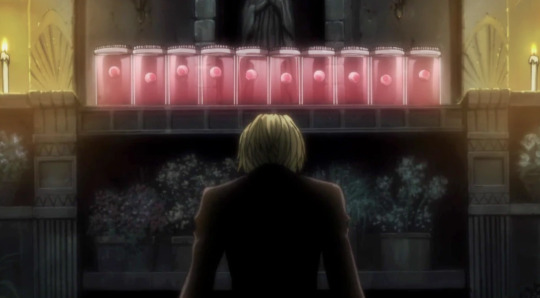
While I recognize that probably everything I'm about to say is going to be super obvious, I just wanted to briefly touch on Kurapika's self-isolation, and the reason behind his not picking up his phone or exchanging anything more than clipped words and business after Yorknew.
I think the obvious answer is that Kurapika doesn't want his friends in harms way, or to be used as a bargaining tool against him. This is an understandable and probably accurate conclusion. After all, Gon and Killua did get taken hostage, and Kurapika was forced to negotiate an exchange. Chrollo picked up on Kurapika's "weakness" right away - that he values his friends' safety before his revenge. Fortunately for Kurapika in this situation, Pakunoda was a whole lot more similar to him than he would've cared to admit, as she placed a value on Chrollo's life even though everyone in the Spider was intended to be replaceable. So, now that he's been through Gon and Killua having potentially gotten killed or seriously hurt, and Chrollo knows that he has a soft spot for them, it does make sense that he would try to push them away for their safety and for the sake of not having an exploitable "weakness" in future. He may also not want to burden them more when they have their own lives to live - he does slip off without telling Gon and Killua for the sake of not distracting them from Nen training, after all.
Except that he already tried all this earlier in Yorknew arc. He tried to tell them they shouldn't get involved, and they all agreed that the risks were massive - but his friends agreed to undergo the risks anyways to help him. Kurapika was even grateful for it - "I have been blessed with good friends."
So, for him to push them away solely for this reason after the fact, knowing that this was very much a likely situation to happen, is a little odd to me. Kurapika knows full well that Leorio would be frustrated, Killua would be offended and Gon would worry. So, I think there's a little more to it than that, and I actually would venture to say that "keeping his friends out of danger" is more a secondary reason for his actions - one that would come across as more of a reasonable excuse to others.
The primary reason is likely a lot more selfish than that. Kurapika has to ensure his mission comes first. And unfortunately, he is fully aware that his path and choice in abilities is deeply self-destructive.
Kurapika needs to make sure that he doesn't have exploitable weaknesses, sure, but he also just as much needs to purposefully worsen his headspace - and he can't do that with those three around.
Think back, what are the happiest moments we see from Kurapika in the series? The one that comes to mind first, and the one I'm sure most of us will think of immediately, is this:
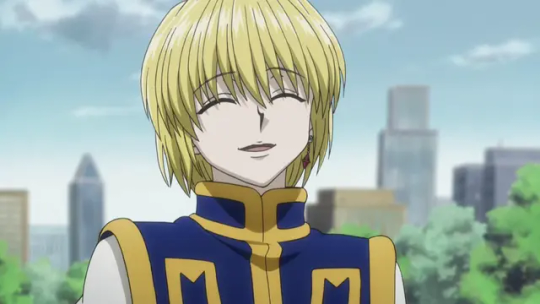
[ID: A screenshot from the 2011 anime adaptation. Kurapika smiles - he looks at ease. End ID.]
It's one of the sweetest scenes of the series imo, right before the whole group is reunited for the first time since the Zoldyck Family arc, and it's even more notable because it comes immediately on the tail end of this...

[ID: Three panels from HxH Chapter 101. Kurapika removes his contacts over the sink. His expression is distant. End ID.]
...and this...
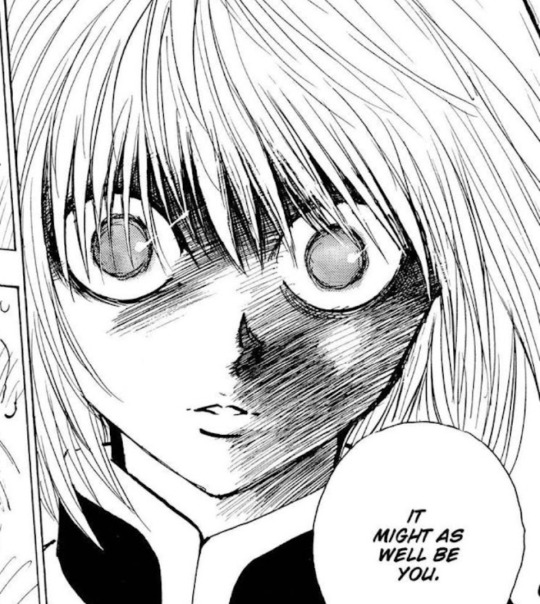
[ID: A panel from HxH Chapter 101. A close up of Kurapika's vacant and furious expression, his eyes wide and dangerous as he says "It might as well be you." Though the art is in black and white, it's apparent his eyes have gone scarlet. End ID.]
...and this.
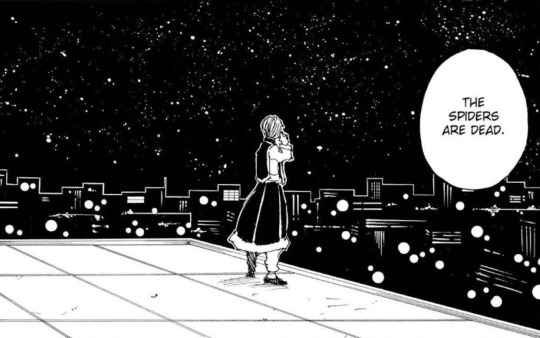
[ID: A panel from HxH Chapter 101. A distant Kurapika speaks on the phone on a rooftop at night, the cityscape of Yorknew around him dark, but speckled with lights and stars. He says "The Spiders are dead." His face is not visible to the reader. End ID.]
This is, up to this point in the series, Kurapika at his lowest. In contrast to Gon, who is happy to hear that the Spiders are dead already because now Kurapika can focus solely on finding his peoples' eyes, Kurapika... is clearly not happy - and that's because killing the Spiders himself isn't just revenge. It's penance. It's survivor's guilt. Kurapika's powers, which Izunavi even comments sound much like he is chaining himself in the process of chaining his enemies, are oh-so-beautifully prophecied to destroy him - and Kurapika was aware of this from the moment he set off down this path of revenge.
(As a side note, this is why I'm really hoping we see Gon and Kurapika interact again after the Chimera Ant arc - while Gon has always been pretty attentive to Kurapika's emotional state, in Yorknew, he lacks a true understanding of why Kurapika would go so far... but as of now, he understands rage fueled by guilt and grief all too well. I know we're all rooting for Leorio to reach Kurapika, but barring that, I really think Gon could get through to him - after all, they are similar in several ways, and I find it fairly apparent that Gon reminds Kurapika of Pairo.)
But back to the main point here - I do suspect Kurapika expects (if not wants) his revenge mission to destroy him. I think a lot of times, we forget just how young Kurapika is, and how much his character is dictated by honour, and the abandonment of it.
Certainly, he can and will go against his principles for the sake of his mission... yet, almost paradoxically, he's bound to his promise to his fallen clan; a promise to avenge them made in anger.
But Kurapika... doesn't come across as a naturally angry person to me at all.
He seems like the stoic, vengeful type on his initial introduction... and then we get his panic at Gon's recklessness
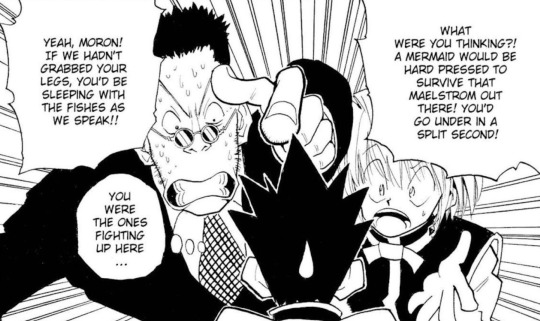
[ID: A panel from HxH Chapter 2. Kurapika and Leorio wear matching expressions of panic in front of Gon, calling him out for his recklessness. End ID.]
...and his near-immediate forgiveness of Leorio after getting the first inkling of his character - of someone who cares just as fiercely as he does.
And after that point? Almost all through the Hunter Exam? Kurapika smiles so readily at them. He's sharp and funny. He mediates at times, but is stubbornly prideful in others. He's very amused by his friends' antics, and it really does seem like he starts to enjoy himself, with them. And, more than that, he counters Leorio's initial impression of him as an independent loner - on several occasions. He decides to follow Gon because Gon intrigues him. Asides from Gon, it is Kurapika who is the most unwilling to fight each other at the bottom of Trick Tower. Kurapika who makes the first move to team up with Leorio, even though that arrangement benefits Leorio much more than it does him. Kurapika who refuses to abandon Leorio to his fate in the cave, and who checks on Gon after noticing his bad mood. Who was furious enough watching him get beat down by Hanzo that his eyes went scarlet for the first and only instance outside of Spider mentions and Emperor Time. Who quite readily detoured to help rescue Killua.
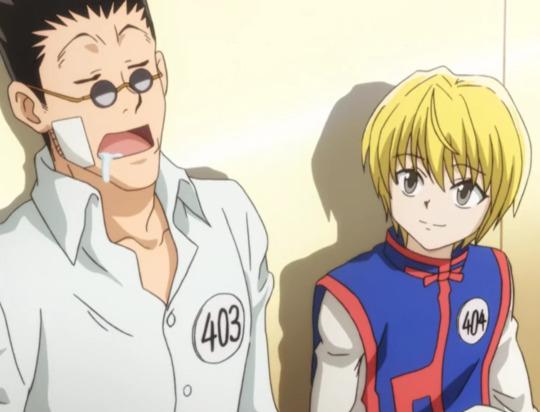
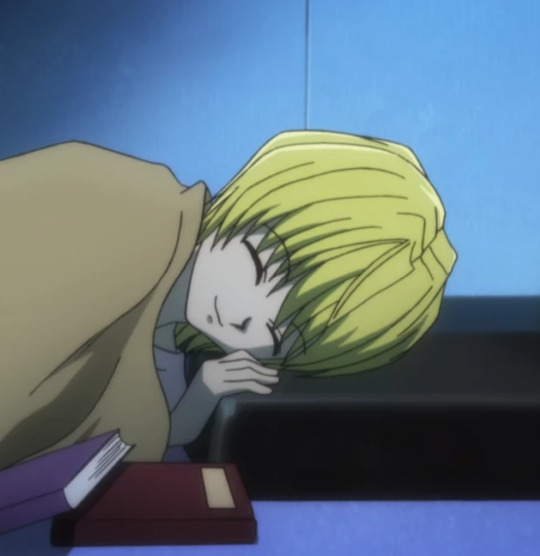
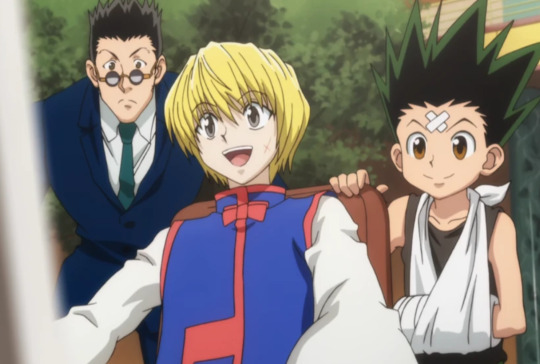
[ID: Three screenshots from the 2011 adaptation Hunter Exam arc. In the first, Kurapika smiles at a sleeping Leorio. In the second, Kurapika stifles laughter as he pretends he's asleep. In the third, Kurapika has an open-mouthed smile as he acquires the airship tickets for them, Leorio and Gon standing behind him. End ID.]
Look at him! He's so bright! So happy!
...too happy. Too happy to do what he promised himself he would do. And that's his biggest fear, isn't it. Without his rage... what is he left with?
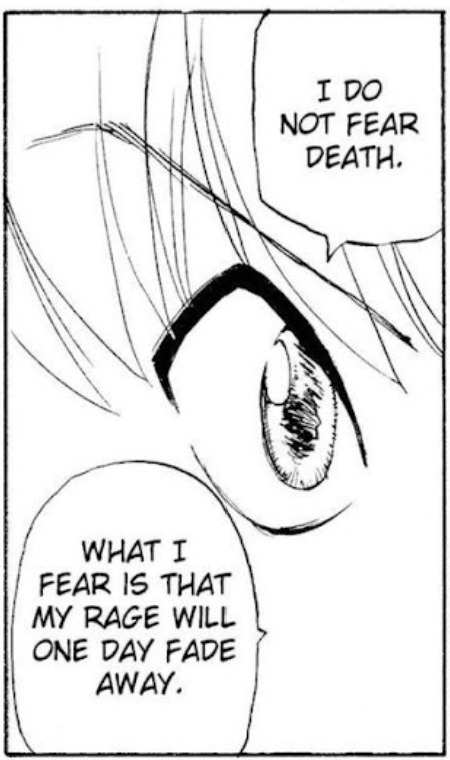
[ID: A panel from HxH chapter 2. A close up of Kurapika's eye as he says "I do not fear death. What I fear is that my rage will one day fade away." End ID.]
Kurapika is far, far less mired in anger when he's with his friends. I actually dare to say that at certain points, he was able to go for lengths of time without thinking much about it - alternating between almost forgetting in one instance and being hit like a sledgehammer on exposure to a reminder in the next. This violent swing is... actually the beginnings of the natural process of healing from loss and trauma. But to Kurapika, who's made a promise to his people's memories, this is not a relief. This is betrayal.
I think that actually scares him, that he can almost picture it. A life beyond his guilt. That he, too, could learn to be happy, even after unimaginable loss.
And so, as Kurapika continues his mission offscreen, finding more and more gruesome reminders of the cruelty inflicted on his people and losing more and more pieces of himself in the process (in his own words, no less), he prioritizes his responsibility to them, and pushes away his distractions. He cannot be a soul at peace until his work is done; he must be in turmoil. He pushes people away who he cares for, and binds himself, and keeps his people's eyes on him, quite literally, because respite, for him, is unacceptable. Perhaps that guilty part of him even hopes, by the end of this, that his soul will be so unrecognizable as to be fundamentally unsalvageable. But the truth of the matter is, or at least what comes across to me, is that Kurapika cares much more fiercely than he hates. He knows what matters most. And for as long as he does, he still hasn't truly lost himself.
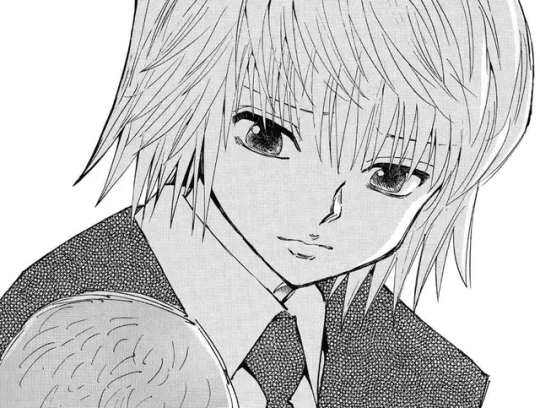
[ID: A panel from HxH chapter 350. Kurapika looks down at baby Woble with a gentle, yet complicated expression. The inking is somewhat softer. End ID.]
Kurapika's soul is kind, really. And it wants to heal - but for the sake of his mission, he needs it damaged and bleeding. And so, he forces himself to exist in that pain. All alone.
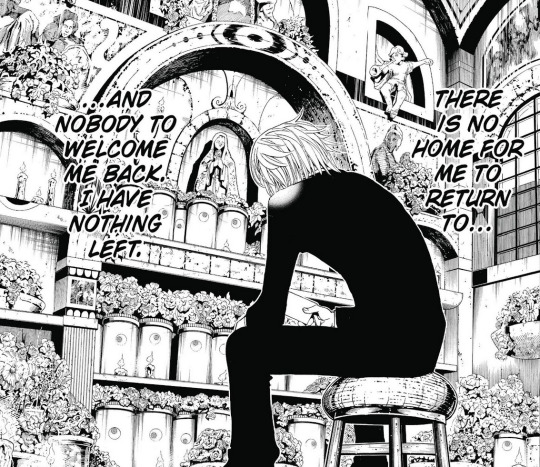
[ID: A panel from HxH Chapter 344. Kurapika, dressed in a black suit, sits with his back to the reader, looking down at a photo in his hand. He is slumped a little before the church vigil he has prepared, all his clan's eyes lined up in their jars and honoured with flowers and candles. He thinks to himself "There is no home for me to return to... and nobody to welcome me back. I have nothing left." End ID.]
#thank you for coming to my ted talk on how kurapika is worsening his own mental health as well as physical health on purpose have a good day#oh my god this took me so long but it was worth it!!!#actual analysis!!! it's been so long!!!#anyways i'm far shakier on my hxh knowledge than other fandoms i've written meta for#so i hope this makes sense. i appreciate additions to it just please be polite!#i also believe that togashi's writing lends itself to multiple interpretations that are equally valid. so much of this#may be my own takeaway. but i do think there's enough evidence to support it#well. i hope you guys suffer... i mean enjoy.#storyrambles#hunter x hunter#hxh#hxh meta#kurapika#call me ace detective the way i am ace. and also a detective#<-analysis tag i missed you
250 notes
·
View notes
Text
I am so sick of Kui. We see Hien’s younger sister in ONE panel in an extra on her blog that didn’t even get published and she’s in Toshizane’s retainer group.
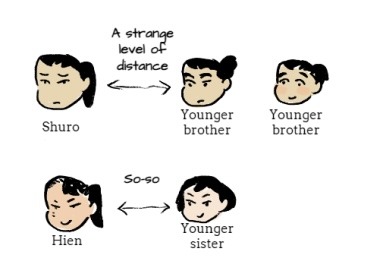
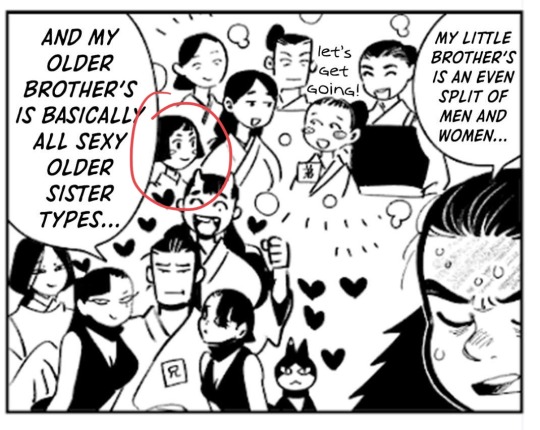
And from other details we know it makes sense too, because both of Hien’s parents work for the Nakamotos and Hien herself grew up alongside Toshiro. Hien and Toshiro were childhood friends, so maybe this unnamed sister and Toshizane (Toshiro’s youngest brother) would parallel them. I’m hopeful that maybe they can stay friends as they grow up, instead of becoming distant and professional like Hien with Toshiro…
Kui really tought through every cm3 of her world I’m crying
#Dungeon meshi#delicious in dungeon#hien#The nakamoto household#Toshizane nakamoto#Prob gonna add this to my nakamoto masterpost. Gonna need to make it a reblog addition though i can’t live like this#Gonna make a speculation and analysis post soon on a similar topic too. So sorry if i start making super niche content soon#Like who tf will come be a Toshiyuki stan with me…#Also don’t come @ me about this girl and hien’s sister not necessarily being the same this is 1000% a Kui move to pull. THE BANG#We have no reason to assume she isn’t#BESTIESSSS it feels nice to know Zane has at least 1 kid his age around. A lil less lonely#Meta
116 notes
·
View notes
Text
The Big AIDS Metaphor Post
In her essay "Why Are Americans Afraid of Dragons?" from her book The Language of the Night: Essays of Fantasy and Science Fiction, science-fiction and fantasy writer Ursula K. Le Guin writes—
"The use of imaginative fiction is to deepen your understanding of your world, of your fellow men, and your own feelings, and your destiny."
It would be easy for me to claim that Stranger Things is a show that utilizes its science-fiction elements as an AIDS metaphor, but that only goes so far without being able to prove that the show is in fact employing said metaphor. "The show takes place in the 80's -> AIDS was a big part of the 80's -> therefore the show is about AIDS" isn't an airtight argument in itself. I can quote famous sci-fi writers all day but that still wouldn't prove that the Duffers themselves are actually following similar trains of thought.
So here's my big long post about why the show is utilizing it's science-fiction elements as an AIDS metaphor.
Lengthy discussion of rape, violent homophobia and drug use below the cut.
A Brief History of HIV/AIDS in America
For those not in the know about HIV/AIDS, and in order to all get on the same page, here is a short recap. For my information, I will be this timeline from hiv.gov as well as this timeline created by History Channel, as well as some of the supplemental hyperlinks provided. Any other sources I use will be linked throughout.
HIV, or human immunodeficiency virus is a virus that attacks the body's immune system, making it highly susceptible to infection and cancers. The virus can progress to a more severe version of the infection, acquired immunodeficiency syndrome or AIDS. The virus spreads through bodily fluids such as semen and blood. The most common ways for HIV/AIDS to spread was through unprotected sex and sharing needles while using drugs.
The initial cases of HIV were present in America in the 70's but become much more rampant starting in the early 1980s. Because cases of AIDS were most commonly seen in gay and bisexual men, there was a large misconception that AIDS was a "gay plague" or a "gay disease" as it was nicknamed. By 1984, 3,500 Americans had died from AIDS related illnesses.
The reason that AIDS epidemic got as deadly as it did is often attributed to the Reagan Administration's failure to act, something that President Reagan denied. Reagan would not publicly acknowledge AIDS until 1985, despite U.S. health officials being aware of AIDS since 1981.
Understanding just how entrenched this metaphor is in the story will include going through each season and examining in detail how each one plays into this metaphor.
Season One: Establishing Metaphor & Government Cover Up in Early Years of Epidemic
The AIDS metaphor is most closely connected with Will's storyline, although it's not exclusive to Will nor is his storyline exclusive to AIDS. Furthermore, the supernatural elements of this show are multifaceted. AIDS is but just one of the metaphors expressed in the show, but for the sake of this post it's what I will be focusing on.
The setup begins following Will's disappearance in episode 1, when Joyce introduces Will's queer coding to us.
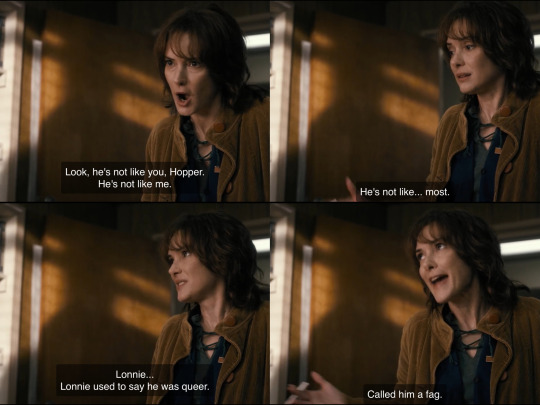
By 1983 the terms "gay disease" and "gay cancer" had been in the public vocabulary for a couple years now. So when Joyce brings up his queerness in regards to to his disappearance in a show that takes place in the early 1980s, there is a subconscious correlation that can be made in the watchers mind. His sexuality is significant to the why he went missing, otherwise why bring it up?
We then hear through Troy exactly what the town believes happened to Will.
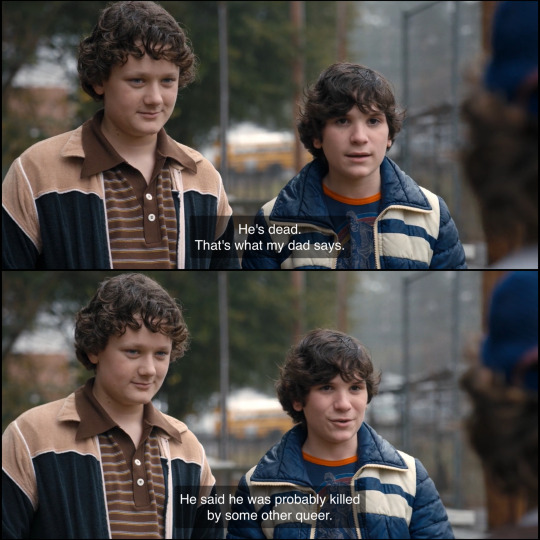
I think that Troy essentially being a mouthpiece for his father is significant to show that Troy's beliefs are not exclusive to him and they do not exist in a vacuum. Troy's homophobia is a product of his environment, which includes his home and by extension, Hawkins.
The specification that Will was killed by "some other queer" adds another layer under the surface of Troy's statement, one that implies that Will was raped before he was kill, otherwise, again, why bring up sexuality in the first place? This was the attitude toward gay men— they rape and kill little boys.
In early 1984, there was a study conducted by the American Journal of Medicine to trace the sexual partners of a cluster of patients with Kaposi Sarcoma, one of the common cancers that killed AIDS patients. The study identified a flight attendant as "Patient O" who was among the first to exhibit symptoms of HIV/AIDS and had a rather active sex life with a multitude of sexual partners. The study was soon misconstrued by the public to claim that there was a Patient Zero who was "a promiscuous or even malicious gay man who single-handedly and knowingly touched off the AIDS pandemic in the United States."
Another crucial factor of the metaphor is the cover-up and blame shifting from the government lab, the exact thing that allowed the problem to escalate and become as deadly as it did to begin with. In the early years of the epidemic, Reagan slashed the budget of public health agencies like the CDC, and it would be years until he ever made a speech about it let alone even mentioned AIDS publicly.
We see how adamant the lab is to cover up any supernatural involvement with Will's disappearance in an attempt to cover their own asses. Framing his death as an accident was their call, all while being acutely aware of what the actual problem was. This confrontation from Joyce to Brenner puts it pretty aptly.
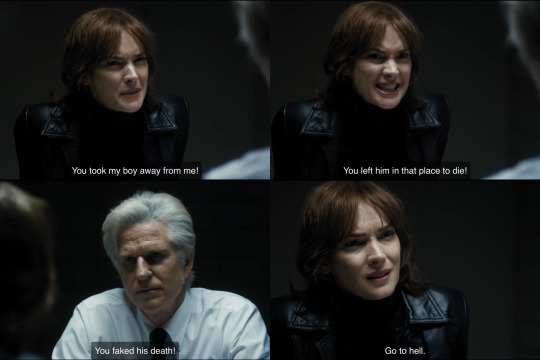
Tangent About Barb
This AIDS metaphor is something that I thought of when I first watched the show back in 2016 (humble brag) but what tipped me off the most wasn't Will or the lab but it was the fact that Barb was the other victim shown.
Barb's queer coding was clear to everyone and their mother. Hell, there's even a joke about it in the Bad Lip Reading of the first season. Barb, Nancy's short haired female friend who takes issue with Nancy's new relationship and has a hard time fitting in with with all of the heterosexual antics of Steve's house party. She's singled out, and while the rest of the gang get to casually enjoy the pleasures of sex, while Barb, another member of the queer community, sadly loses her life. The show cuts between Nancy having sex with Steve with Barb being killed to emphasize this stark contrast.
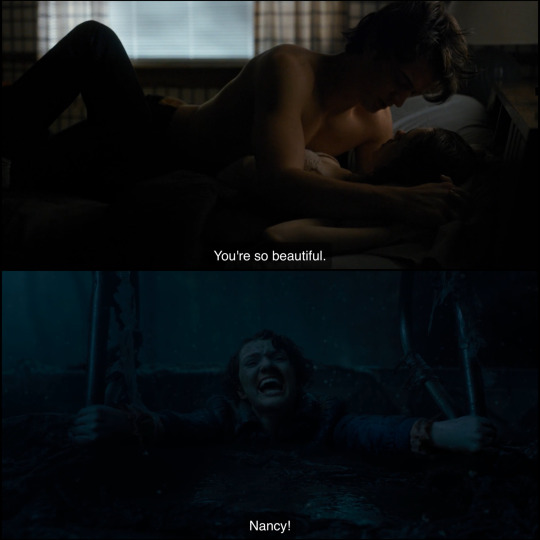
Season Two: Personal Effects of HIV/AIDS & Social Stigmatization
Season one was surrounding Will while not really showing us much of his pov, but season two dives right in to his perspective.
So, remember when I talked earlier about how Troy, and by extension the town, believed that Will was raped? Well, he wasn't exactly wrong.

This moment wasn't lost on me when I originally watched the show, although I think I ignored the implications because I didn't want to believe what I was seeing. But it's pretty well spelled out— A long, tentacle-like organ used for the sake of reproduction (Will "births" D'Art as a result of this), is inserted inside of Will's mouth without consent.
It's been a year, and Will is still dealing with the trauma of what happened, along with all of these new changes to his life. Will frequently attends doctors appointments at the lab, where the lab themselves aren't completely confident what is happening with him either.
When cases of HIV/AIDS were first appearing in the U.S., health officials were unclear as to what exactly this virus was and how it worked, only that clusters of otherwise healthy gay men were suddenly developing rare and aggressive infections and cancers.
Owens refers to the spread of the Upside Down very clinically— describing it as some cancer. One of the first articles published about HIV/AIDS in America before more information was known was a New York Times article titled "Rare Cancer Seen in 41 Homosexuals." The cancer the headline refers to being Karposi Sarcoma, the rare skin cancer developing due to their weakened immune system.

HIV/AIDS in itself isn’t the disease that patients die from, but instead the weakened immune system allows for diseases to take over the body without much defense. After his visit to the Upside Down, Will faces a series of “True Sight” visions as Mike puts it, which allows for a destructive foreign entity to invade Will's body and slowly take it over.
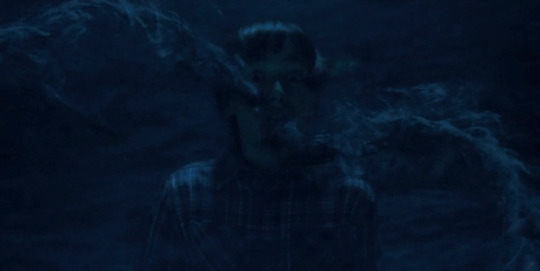
HIV.gov lists the following as some of the symptoms of AIDS:
"Rapid weight loss"
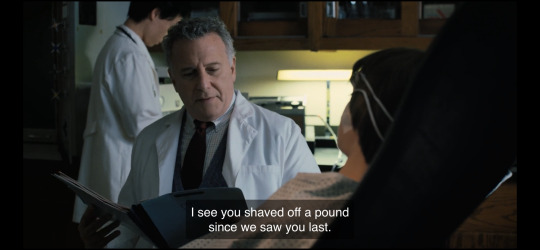
"Profuse night sweats"

and "Memory loss"

To the government agents in the lab, we see just how disposable Will is to them. In their words, if it kills him, it kills him. (thank you to @emblazons for being the one to point this out to me)
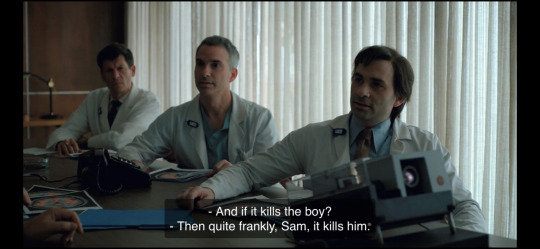
Owens may have held more concern for Will, but he still continues the government cover-up started by Brenner in season one. We also see the fallout of Barb's death, with Nancy and Jonathan fighting to uncover and reveal the truth. Owens is the one who tries to put a stop to their exposé of events to Barb's mom.

Not only is Will facing trauma and his body being ravaged by this new illness, but he's also facing social stigmatization, something common among gay men with positive HIV statuses at this time. There seemed to be some sympathy from the townsfolk when Will was missing and presumed dead, yet he faces animosity almost seemingly because he came back.
The "Zombie Boy" Nickname
I once made a whole separate post about this, but Will's "Zombie Boy" nickname from season two fits in with this AIDS metaphor.
On a surface level, the nickname is in reference to the fact that Will seemed to come back to life despite having a funeral and being buried. In a literal sense, however, his peers are quite literally referring to him a walking corpse that spreads disease. Individuals suffering from AIDS often have very short life expectancies, and zombies are the re-animated dead that aim to infect and kill as many people as possible. It is a very coded nickname.
In the post that I linked, I speculate the possibility that some people in town may even believe that Will has HIV. Remember earlier when I mentioned Troy's comment "he was probably killed by some other queer" which implies a belief that Will was raped. The town don't know about any of the supernatural goings-on, but they do know that Will went missing, was found in a cabin a week later, was hospitalized shortly after and attended frequent doctor visits through the following year. I don't see a reason that malicious rumors would cease, especially considering that they already continue to be cruel and ostracizing with the Zombie Boy nickname.
Look also at this moment of Will getting weird looks as he is being pulled from school to attend his doctors appointment. Why so much stigma around simply going to the doctor?
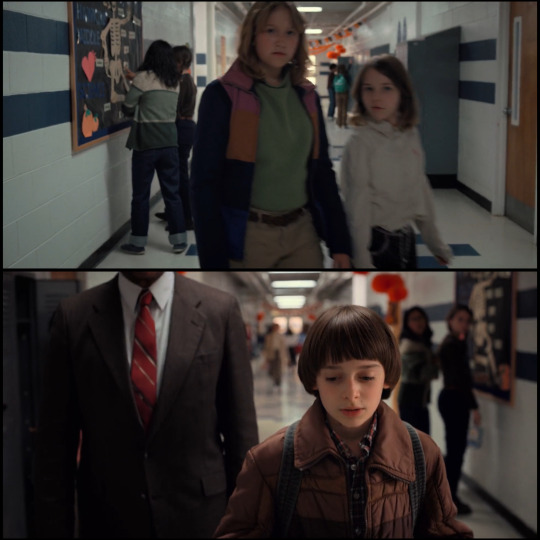
The 1984 Reelection of Ronald Reagan
In 1984, Ronald Reagan won reelection in one of the biggest election wins in history. And— subsequently continuing his and the governments silence towards the AIDS epidemic.

Season two takes place in the week leading up to the reelection. There are small set pieces that draw attention to this, such as this election sign in front of the library.
If the date November 6th sounds familiar, it should.
Dr. Owens mentions the anniversary of Will's disappearance. The one year anniversary of Will's disappearance is the same day that Ronald Reagan was reelected. Will's trauma is being purposefully associated with that day.
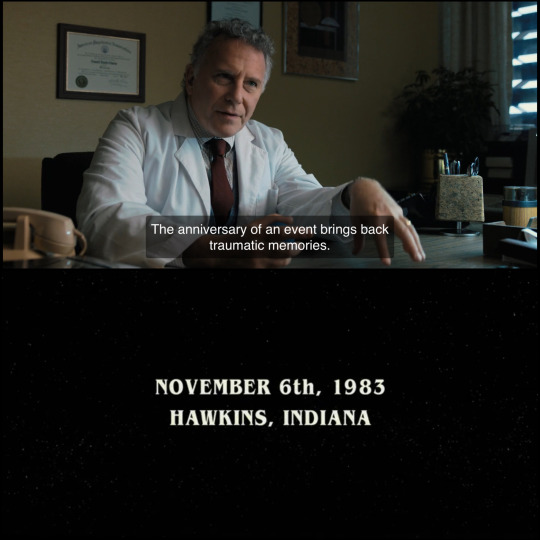
I've also made a separate post before just about the Reagan/Bush '84 signs that litter the lawns of Hawkins houses. They appear most notably in the Halloween episode, building to when Will has his true sight episode that night. There is one clearly in frame just before Will is separated from the group, called a "Zombie Boy" and a "freak" (two very coded nicknames) before he falls into his vision.
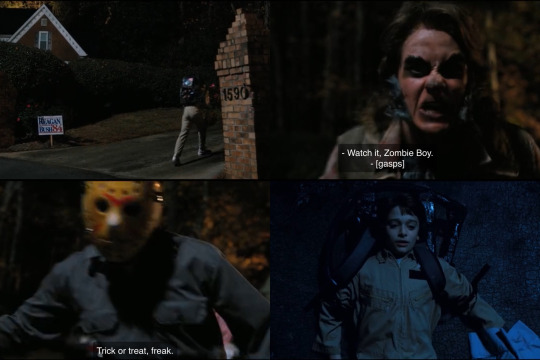
We also get a clear view of the Reagan/Bush sign outside of the Wheeler house before Will describes his experience to Mike.
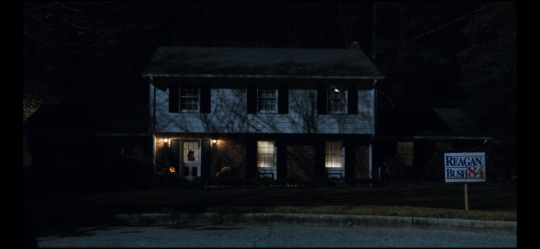
A Tangent About the Wheelers
And now the question on everyone's mind: Are the Wheeler's homophobic?
Ted and Karen Wheeler are not violent, homophobic bullies. That would be a massive reach. But it would also be a reach to say that they are vocal allies. And maybe that's just what the average middle class family
In the very least, the Wheelers are passively contributing to a system that enables homophobia. To be honest, they are probably just going along with what everyone else is doing. Like I said earlier, Reagan was an incredibly popular candidate for the 1984 reelection. The Wheelers have the privilege of being able to comfortably conform without having to worry about much of the consequences. (I'll talk more about the Wheelers later)
In the episode where Will is possessed by the Mind Flayer, Joyce calls the school and we get an extended shot with Reagan's portrait in the background. The shot begins with the portrait slightly obscured, then the camera dolly's in towards the receptionist with the portrait still in frame. Shortly after this Will is possessed in the field. Here is one of the camera begins the shot and where the camera ends the shot.
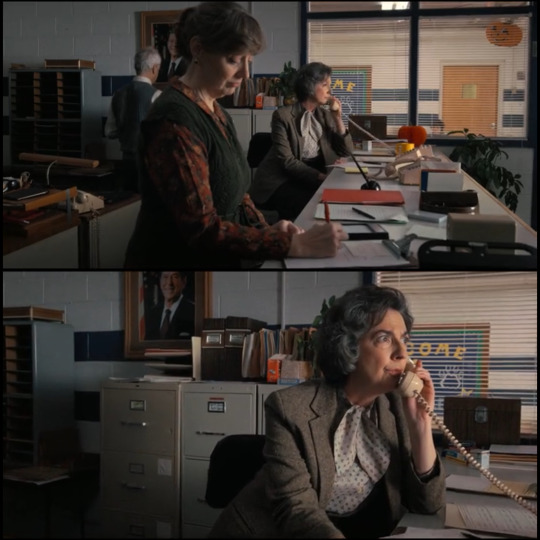
I also wanna note that when Joyce calls in this scene, the receptionist makes a side comment about her and rolls her eyes. There's a clear animosity towards not only Will, but the whole Byers family, including the adults of the town. Including Reagan's portrait in this shot is meant to create a subtle correlation between him and the stigma that the Byers' face.

Season Three: The Façade of Patriotism Over a Dying Nation
It's 1985, Ronald Reagan has been reelected, and this season introduces Hawkins Mayor Larry Kline.
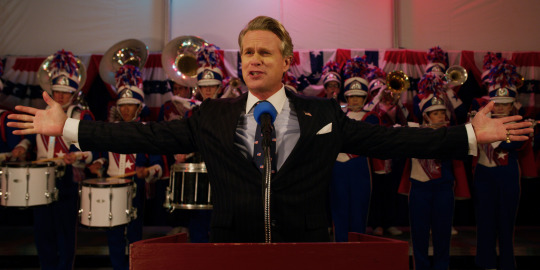
Is Larry Kline meant to be Ronald Reagan?
I would say that Mayor Kline is probably exemplary of American politicians in a broader sense (in fact the Duffers may have been making allusions to Trump with his connection to the Russians) although the fact that he's in office the same time as Reagan is still significant.
In the beginning of the season, Mayor Kline is being met with protesters outside his house, not unlike many of the AIDS awareness protests from the 80's.
The townsfolk are angered with Kline for building the mall and running some of the small businesses into the ground. During Reagan's run, he implemented a system of economics called "Reaganomics," which aimed to cut taxes and support economic growth. Although critics of Reaganomics will point out that his policies had actually increased the wealth gap, making the rich richer and the poor, poor. I want to keep this post about the AIDS metaphor, although I wanted to point this out as it is a connection between Kline and Reagan. And as I said earlier in this post, the metaphors are multifaceted and not just about AIDS.
But continuing, later in the season Kline puts on a big 4th of July festival to celebrate the independence of his country with neon lights and flashy fireworks. Meanwhile, the people of his town are dying right under his political reign.
During season 3, the AIDS metaphor actually moves away from Will, with the focus of his story shifting slowly to romance. This was setup at the Snowball at the end of season 2, and season 3 hints at some of Will's feelings for Mike which will be carried into season 4.
But the metaphor is carried on by Will's name twin, Billy.
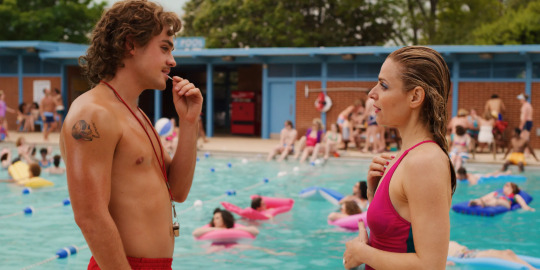
Billy and Will sharing the same first name, that being William, feels significant as Will basically passes the baton to him and Billy now becomes the focus for this metaphor. We learn from Max that Billy is very sexually active, and in the beginning of the season he has eyes for Karen Wheeler. It is while he is on his way to this illicit sexual affair when he is "infected" by the Mind Flayer. (this was pointed out to me in the comment of one of my posts, but have since lost it. If you are reading this— thank you.)
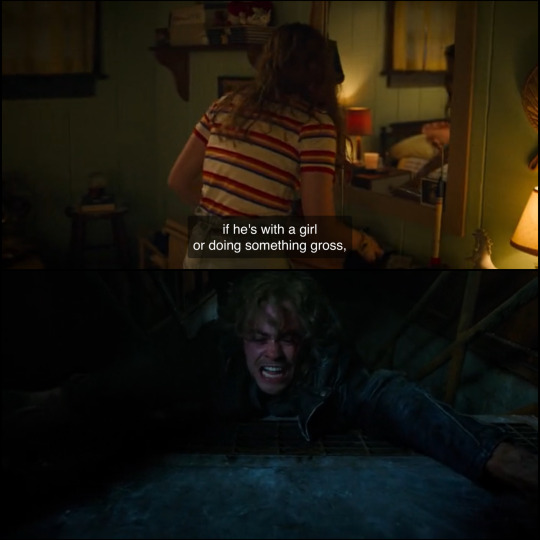
Billy then passes the "infection" along to a girl he was flirtatious with, before the "virus" begins spreading over town.
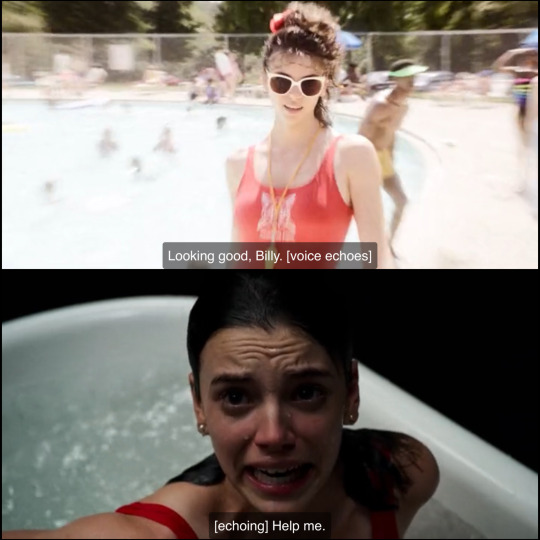
There is also language and rape imagery associated with being flayed. There is the repeated lines "hold still" and "it'll all be over soon." When Heather's parents are flayed, they are tied up something is forcefully inserted orally, not unlike what we saw with the tentacle inside of Will in season one and his possession in season two. (I first saw this pointed out by @kaypeace21

The flayed begin to eat chemicals, and Nancy makes the comment that Tom, one of the flayed, appears to have been on drugs. Another common way that HIV is spread is through the sharing of drug needles.
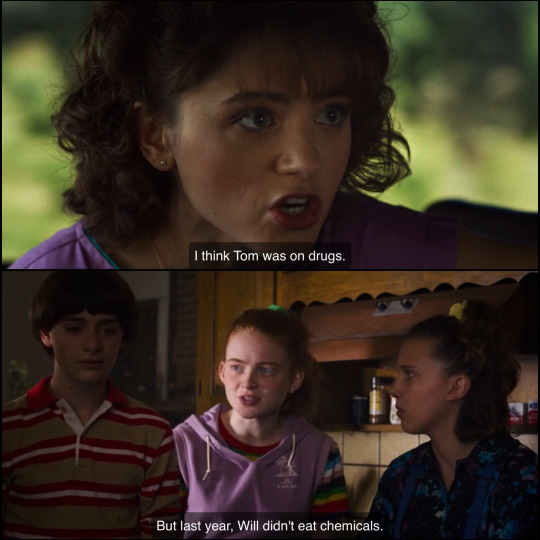
HIV/AIDS in the Press
Nancy's arc with the newspaper this season reminds me a lot of how AIDS was first being reported in the press. Nancy begins her search for a story with stolen fertilizer and diseased rats, not realizing that there was a much bigger and much more dangerous story at hand. One of the first reports HIV in the media was from a CDC Morbidity and Mortality Weekly Report from 1981, which cited five cases of pneumonia in previously healthy gay men in Los Angeles. While still a deadly number, it was relatively small compared to the massive number of AIDS cases and deaths that would soon follow.
When Nancy brings her story to work, Bruce, one of her higher-ups, sips from this rather patriotic coffee mug before telling Nancy to drop the story.

At the end of the 1985 summer in Hawkins, the flayed have died in a "mall fire" and Larry Kline is arrested for colluding with the Russians, and their patriotic façade is shattered.
In September 1985, shortly after actor and close friend of Ronald Reagan, Rock Hudson dies, of an AIDS related illness, Reagan makes his first public acknowledgement of AIDS.
Season Four: Further Stigmatization & LGBT Witch Hunting
In season four the town is finally privy to the fact that there is something wrong going on, although they are unsure of exactly what. When things begin to escalate, instead of blaming the actual guilty party, they go on an all-out witch hunt.
Once again, Will's pretty removed from the AIDS storyline in this season with his arc focusing on his romantic feelings for Mike. With Billy dead and Will out of town, the baton passes once again for the metaphor to be carried by Eddie Munson.
In the first episode of season 4, Eddie is reading a magazine with an article about the Satanic Panic, a real case of wide-spread hysteria in the 1980's regarding the fear of rising Satanism, supposedly promoted by D&D. The article links the game to violent behavior, Satanic worship, sodomy and murder.
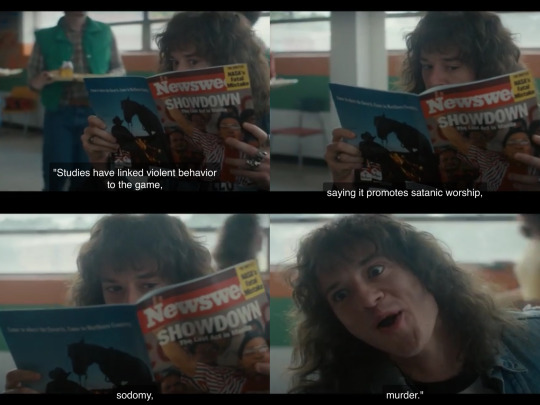
Tangent on Sodomy and Sodomy Laws
Merriam-Webster defines sodomy as "anal or oral copulation with another person." The definition is often expanded to include copulation with animals, although the term sodomy, according to Merriam-Webster, means "especially: anal or oral copulation with a member of the same sex."
While definitions may vary depending on states, some states have specific laws outlawing sodomy, even between consenting adults. In 1986, the Supreme Court upheld Georgia's anti-sodomy laws in Bowers v. Hardwick, after a homosexual man and his partner were arrested after being caught while having sex in his own home. Sodomy laws would eventually be challenged again in 2002 with the Lawrence v. Texas case.
While sodomy can technically can refer to both homosexual and heterosexuals, it is especially and historically has been used in regards to homosexual sex. When Eddie reads the word sodomy here, gay sex is being lumped in and made equivalent to violent behavior, Satanic worship, and murder. Quite literally in season four, Hellfire Club is seen as the evil Satanic sodomizers who bring death to their town.
While trying to find a substitute for the D&D game, one of kids Mike asks mentions 60 Minutes in his rebuttal of Mike's request. This episode takes place on March 21st, 1986. On March 16th, 1986, 60 Minutes played a segment called "Life and Death in San Fransisco," a segment about the AIDS virus on CBS. (EDIT: I originally attributed this to the wrong person, but thank you to @aemiron-main for being the one to point this out. Apologies for my memory mixing up my ST analysts in my head 😔) The archived footage can be viewed on YouTube.
When Chrissy is killed by Vecna inside of Eddie's trailer, leading the town to suspect that Eddie was the killer, she was going there to do drugs. Again, a common way for AIDS to be spread was through the sharing of drug needles. After the town and cops suspect Eddie, the town goes on an all-out witch hunt for him and other members of Hellfire, invoking Christianity as their reasoning. In Eddie's words— "Hunt the freak, right?"
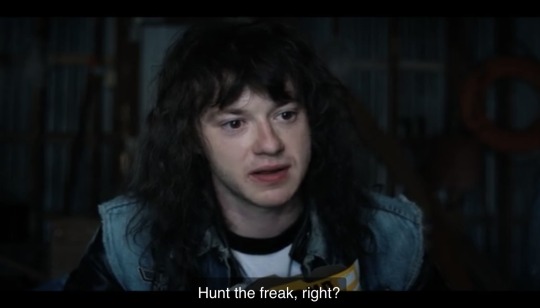
Does this mean that Eddie is queer?
The black handkerchief in his back pocket and Joseph Quinn's flirtatious ad-libs with Steve are not completely lost on me. And the AIDS coding here does seem to be pointing in that direction, but here's what I think.
Eddie's actual sexual orientation, and by extension that of Hellfire, is beside the point and doesn't actually matter in the eyes of the town. Every member of Hellfire could be straight and every member of Hellfire could be gay, but what matters is that Hellfire Club is a group of outsiders that participate in recreational activity that is deemed dangerous, and that in itself is queer, regardless of who they may actually be attracted to.
Another Tangent on The Wheelers
During Jason's religious spiel in town hall which invoked the witch hunt against Eddie and Hellfire, we get this shot of Ted and Karen Wheeler upon remembering that Mike is a part of Hellfire. And boy do they look terrified.
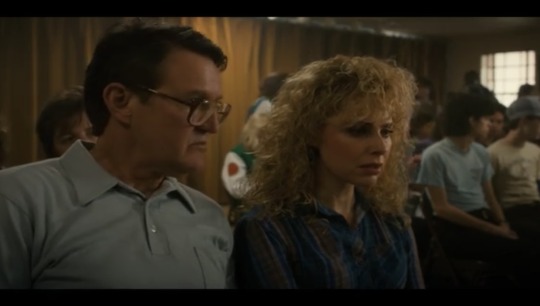
This moment, right here, is what I believe to be the Wheeler rug pull. They may not have been signing up to witch hunt their son when they put that Reagan sign in their front lawn, but this is what it leads to. They're being confronted with the most extreme end of their forced conformity and they fear what they see. I think part of what causes this change in character is because they know Mike, had Mike not been a Hellfire member, who is to say if they would have changed their tune or join in the witch hunt. At the end of the season, when the news reports that the giant gate in town is a "doorway to Hell," both Ted and Karen scoff at the report, calling it "hysteria." The conformists are beginning to un-conform.
Concluding Thoughts & Season Five
Providing a story about HIV/AIDS through a science-fiction metaphor is both practical and ethical. The metaphor allows the show to tell the story to a wide audience without the reliance on outside knowledge. You don't have to be an expert in HIV/AIDS history to understand the story that it's trying to tell. It's ethical as well in that it doesn't force it's incredibly young actors to have to act out being raped and developing HIV/AIDS.
With Eddie Munson dead and Zombie Boy back in town, I think that the AIDS metaphor will shift it's focus back to Will. I think we may see a colliding of the AIDS plot with his romance plot. How do you pursue romance with a HIV+ status? Can you?
The way I see, season 5 has the choice to go in one of two directions:
But first, a short tangent about my uncle
In recent years, I came to learn that my uncle was HIV+, something that wasn't known to me when I was younger. Him and his partner are both in their sixties, and they currently bought a plot of land in which they plan on building their dream house together.
But anyways, the two choices are this:
Will dies by the end of the season. He becomes one of the many gay men with HIV/AIDS who lived a short life, unable to grow into adulthood and pursue his love life. His story is a tragedy.
Will lives. He becomes one of the many gay men with HIV/AIDS who survived and is able to live a long and happy life full of love. His story is an uplifting one full of hope.
Tagging: @emblazons @italiantv @gaysmindpalace @ven0moir @punkwillbyers @mikesbasementbeets @quinterobb @drangues @basiltonpitch @howtobecomeadragon
#stranger things#stranger things analysis#st aids metaphor#tw rape#tw drug use#tw homophobia#okay. after much teasing and putting it off. it is done#if you ever expressed any mild interest in this post then i tagged you#but also apologies if i missed anyone#edit to tags btw i probably did not cover everything just everything i felt most confident on. i know this topic is probably pretty expansiv#if you have additions feel free to add!!
338 notes
·
View notes
Text
I've noticed something about the Traffic SMPs: Each season is modeled after the previous winner's path to victory.
Third Life is the "base" form. Every season follows the same general rules that Third Life followed- (roughly) three lives, only red lives can kill unprovoked, the last one standing wins. Green-yellow-red as the life system's colors. The mechanics of Third Life exist in every following season, and it is only the seasonal gimmick that changes.
And the winner of Third Life was Grian. Grian, who spent the game trying to make up for a life he never meant to take. Trying to pay Scar back for what he did. 'Giving up' his own lives, in a sense. Grian, who regularly worried and fretted about how many lives his partner was on, and who would have had far less anxiety had his partner been able to have more lives. Grian, who broke the only-reds-may-kill rule from the very beginning.
Last Life, then, echoes these truths. Players are able to directly gift each other lives. They could hold onto as many lives as they were able to gather, with no upper limit, and could spawn in with double as many as they had in Third Life. There was a special role designed to push greens and yellows to kill before they were red. Grian implemented these actions into his time in Third Life, and so the universe gave him a world defined by them.
And then Scott won Last Life. Scott, who was defined in Last Life by his undying loyalty. By his connection with Pearl and, later, with Cleo; and by his refusal to betray them until it was absolutely necessary. Scott, who denied the bloodlust of being the boogieman because of a refusal to betray those he cared about.
Then Double Life implements soulmates, people who you cannot betray. Soulmates, who are bound by the fabric of the universe to each other, who are expected to trust each other implicitly and stand alongside each other until death does them part. They are defined by their loyalty to each other, and by their inability to kill each other. Just as Scott acted in Last Life.
So, then, the question becomes this:
When the victor of a Traffic SMP is defined by loneliness, by an air of doom that follows her, by being isolated from all who meet her, what mark does that leave on the world that follows?
#my analysis#traffic smp#life smp series#double life smp#last life smp#3rd life smp#scott smajor#grian#i think those are all the tags i need to put on here for organizational purposes#i just think this is REALLY interesting#bonus note: each time the winner is haunted by the new additions#like. the new additions become their worst nightmare within the next world#grian becomes a life thief and a boogeyman#and scott is distanced from his soulmate
2K notes
·
View notes
Text
Claudia's Hair & Growing Up
I've written previously about how Claudia's wardrobe signals a shift from her childhood self to her adult self but the most clear and obvious marker of her self-perceived adulthood is her hair. In the early 1900s, a girl was allowed to have her hair down or in a half up do until about age 17-18 or when she made her debut into society. After that, when appearing in public spaces, she would be expected to have her done up (and also wearing a hat).
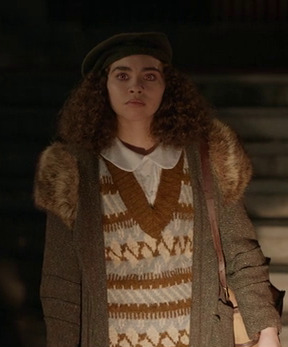
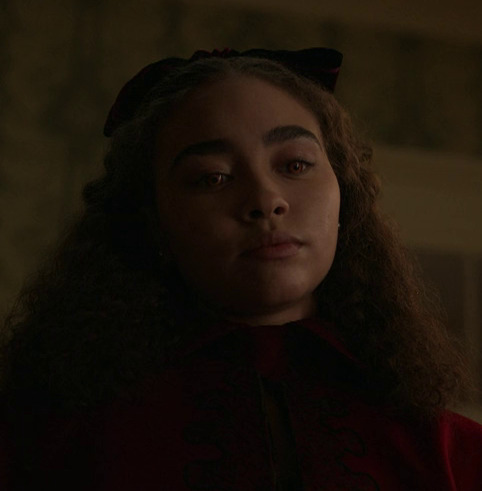
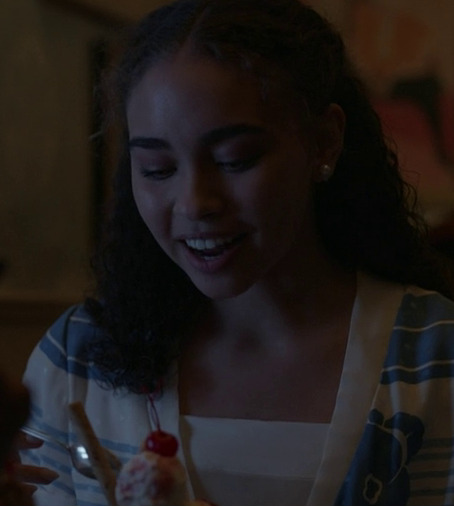

As you can see in episode 4, she has her done in the typical style of a young girl in the 1910s, ornamented with a bow or some other decorative ribbon. In fact, this is one of the clearest indicators to people like Charlie and the guy at the university that she's really young even if she claims to be older. This is a childhood/early adolescent hairstyle and an adult woman would not have worn it out and about.
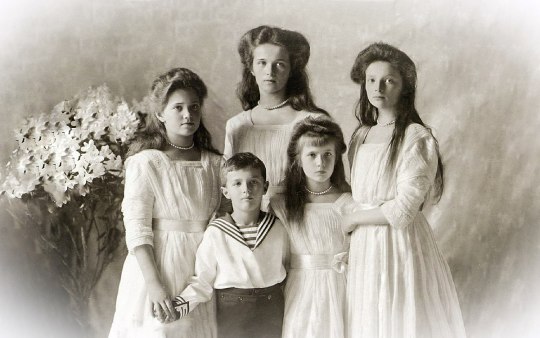
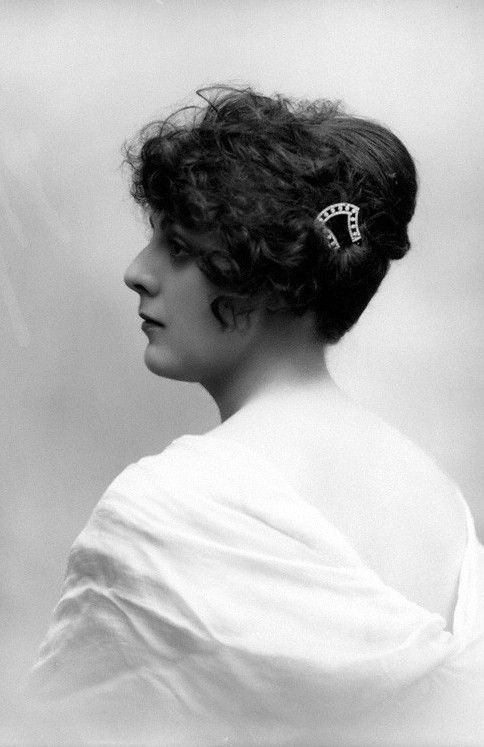

In the first photo above are the Romanov children with the girls between childhood and early adolescence. Below that, you have adult women in the 1910s with their hair done up and on the right wearing a large hat when out of the house.
However, an interesting shift happens in the 1920s that coincides with Claudia's coming of age and while it's not explicitly explored in the show, it likely compounded Claudia's frustration at her inert physical state. The 1920s was the beginning of VERY short hair becoming popular with women, so instead of marking your adulthood by putting your hair up, many would simply chop off their hair into a flapper bob.
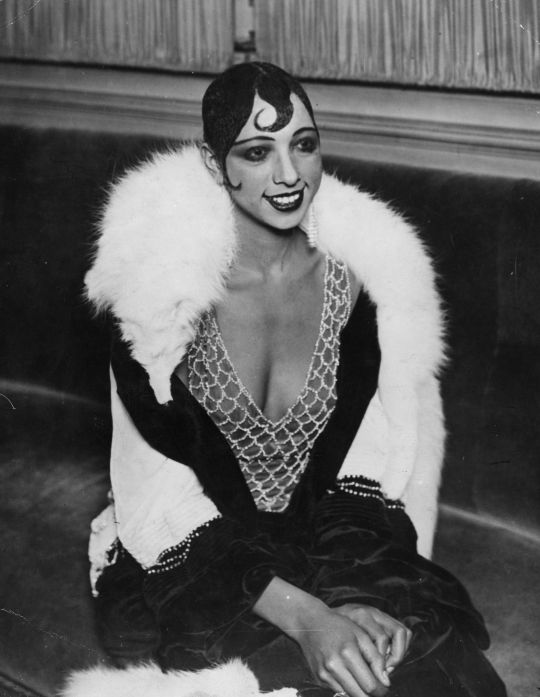
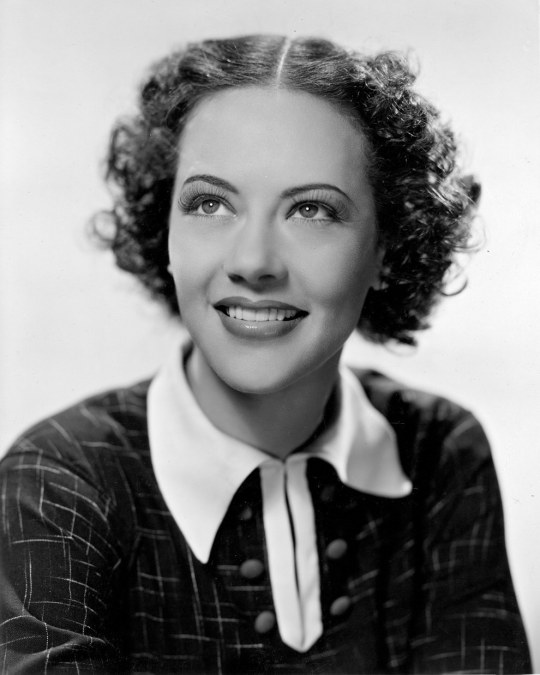
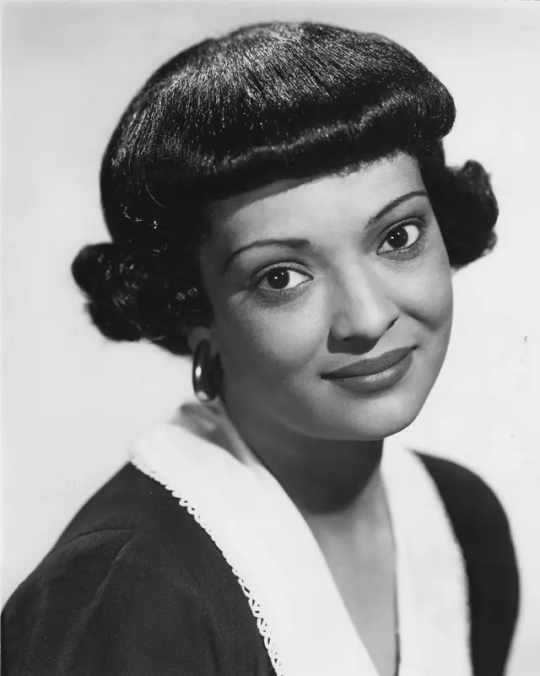
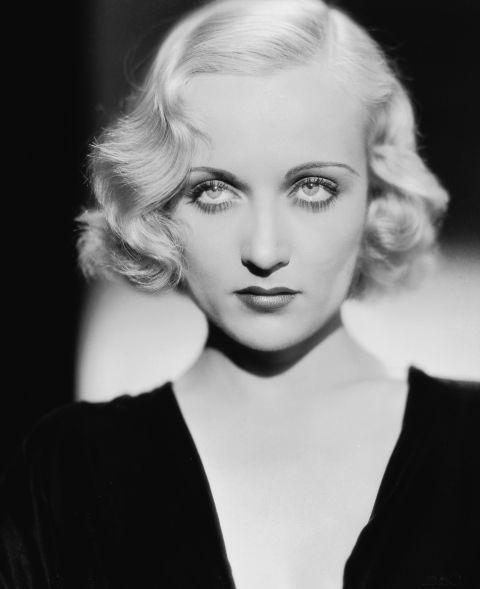
But Claudia CAN'T cut her hair. It would just grow back so not only is her body in arrested development but she can't even style her hair to the adult woman trends of the era. She's not only stuck in a 14 year old's body but she's stuck with a 14 year old's hair length from the year 1917. So what does she do? After episode 5, she almost always wears her hair up especially when out in public and when she is trying to project maturity (anatonizing Lestat, buying things at the pharmacy, meeting with Tom Anderson). While she may not be able to cut her hair to match the trends of the 1930s woman, she CAN at least put her hair up like a 1917 woman. It's literally her one way of controlling her appearance beyond how she dresses.

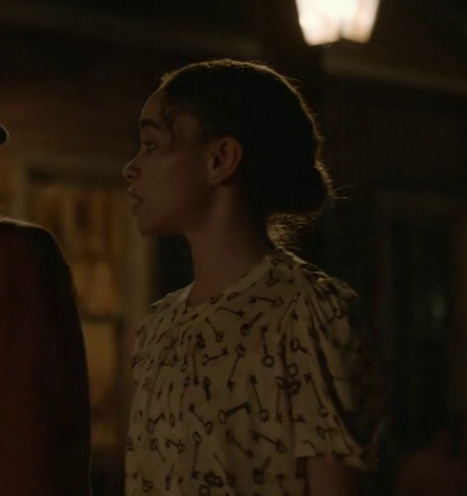
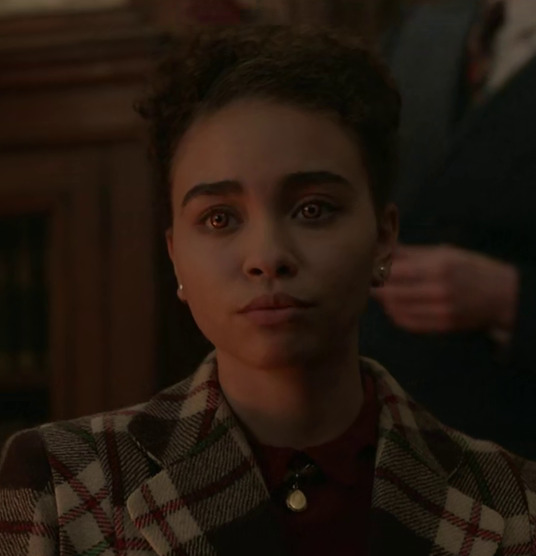
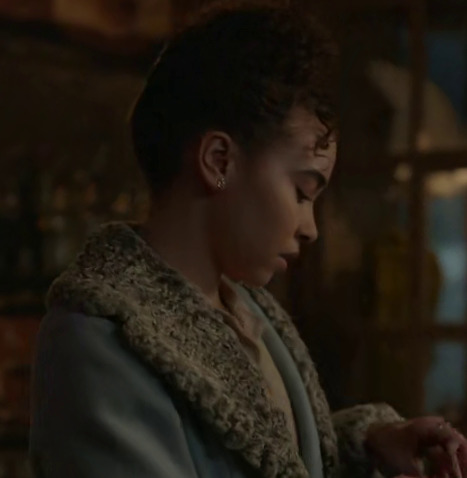
Final note: while the show in general has pretty accurate and well developed styling choices, the one glaring exception is Antoinette. She's really not styled properly for any era she appears in and I know her looking 35 years old for 30 years is a bit of a joke in fandom but truly her hair is just NOT it. It's way too short for 1917 (needs to be updo capable!!) and kinda too long for the 20s-30s. They really just did not care about styling her accurately at all and ykw that's okay cause she doesn't really matter lmao.
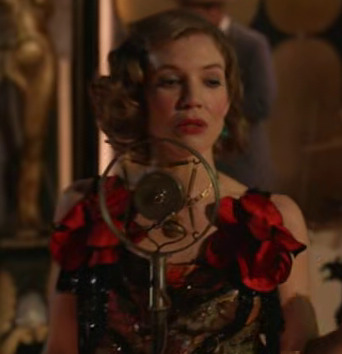


Like look at these from the years 1917 and 1937 and then look at the styles I posted above of the 1910s vs. the 1930s and like????? what is going on here lady!!! You're just not trendy in any era hon.
#iwtv#costume analysis#i hate this fandom i didn't even wanna post this#but i did it for claudia#also pls feel free to add any additional info on hair textures and stuff!!
279 notes
·
View notes
Text
No okay but listen, there's just so much about Akutagawa being one of the only characters to ever apologize! And repetedly at that! I could talk about it forever! It's the character growth and improving as a person but also it's the constantly feeling himself as less, constantly under the impression that he's not worth others, like he's undeserving to live, which of course he never expresses through words, except sometimes it will still transpire! Sometimes his terrible self esteem will show! It's about his perception of himself like he's always messing up! It's about his perception of himself like he's always failing in proving himself to others! It's about his desperate need to be acknowledge by someone! It's about feeling like he's irreparably stained and corrupt! It's about the always feeling like coming short, always a disappointment to others! Like he's undeserving of love! Like there's no way anyone could ever look at him and see anything but a rabid dog! It's about the self loathing! It's about the– wait what do you mean Akutagawa and Atsushi are actually the same
#Shocking#ryūnosuke akutagawa#sskk#shin soukoku#bsd#bungou stray dogs#bsd ch 14#bsd ch 87#bsd ch 84-88#bsd analysis#my analysis#mine#q.#11/12/22#Mmh addition in reblogs if I remember to
164 notes
·
View notes
Text
In season 4 his attires are pretty similar to the ones in the last season
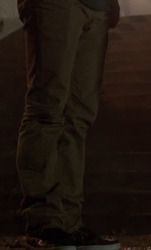

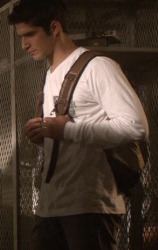

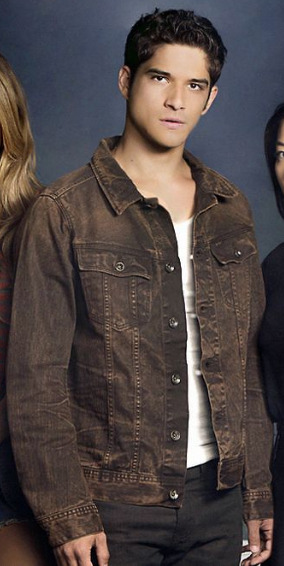
Though you can definitely say that this time around he is leaning more into the business casual style


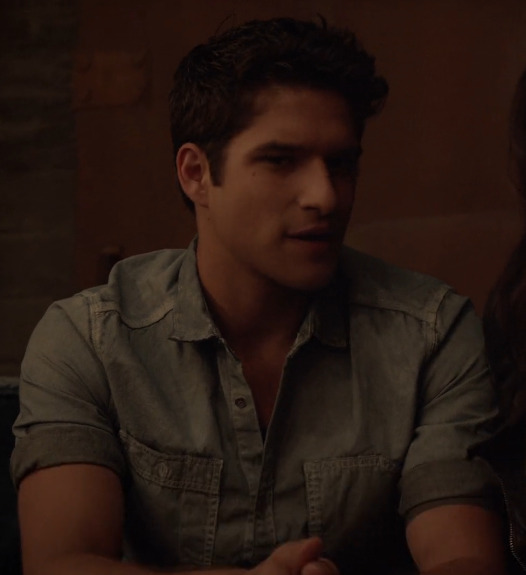
I don't think that was a conscious choice from the production , BUT if we were to ignore the external aspect of it , we can theorize that he was going a bit overboard trying to look put together after Allison's death.
Season 5 is easily his worst season when it comes to clothes , because it is just pretty boring .
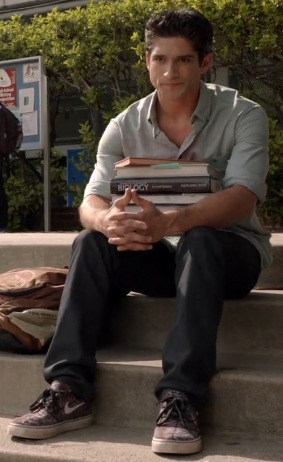
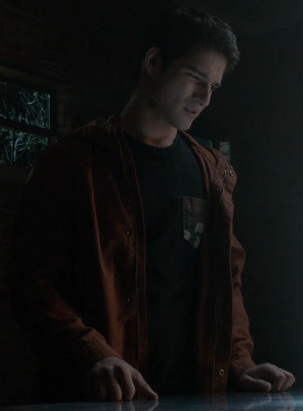


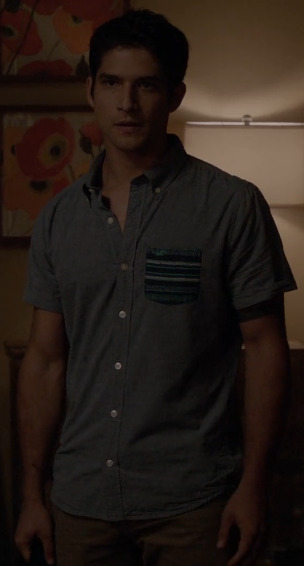
The only real highlights are these new jackets

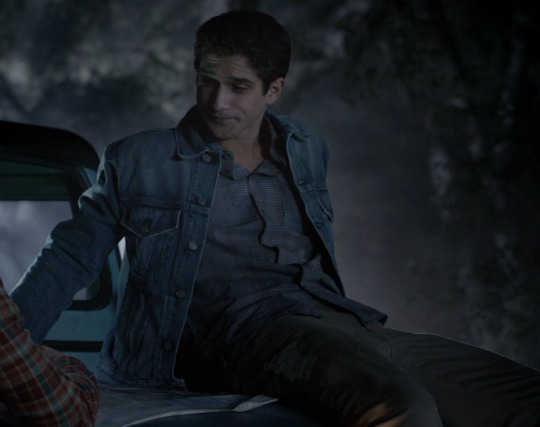
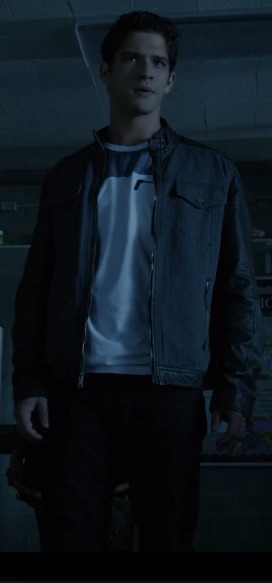
and this zip-up shirt

Where are his hoodies!?
Thankfully , season 6 corrects season 5's sins.

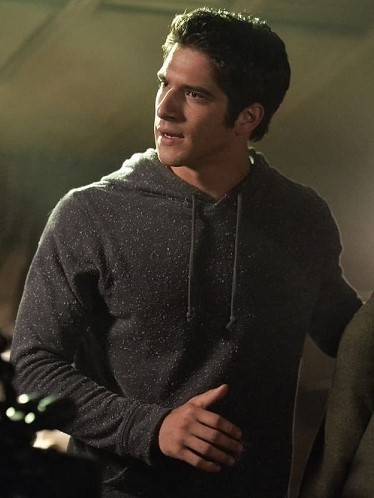
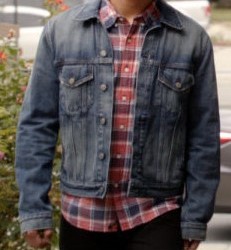

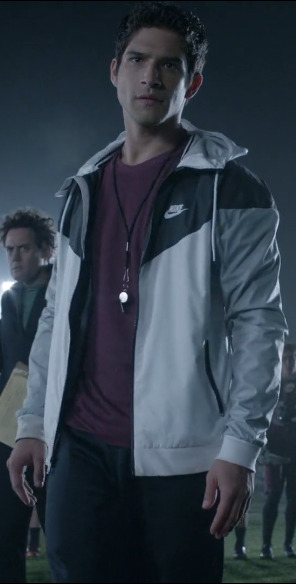
This is the season where he wears jumpers pretty consistently which makes me very happy , cuz I love jumpers.
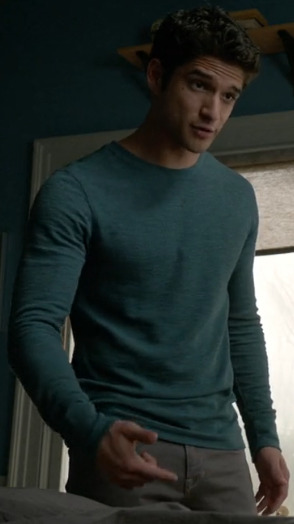


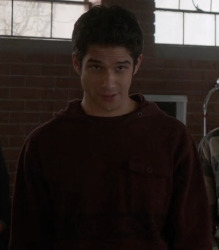

In his final moments in the show he wears a coat

which is obviously meant to portray how mature he has become , but the shipper in me can only think how scisaac coded this is
like what do you mean Scott put his life on hold to deal with other people's bullshit ? NO! Scott and Chris are simply running a few errands. Isaac gave Scott one of his coats to keep warm .They are having dinner later with Chris and Melissa . Shut up.
In the movie his style doesn't really deviate from the one in the series.
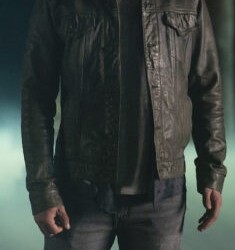
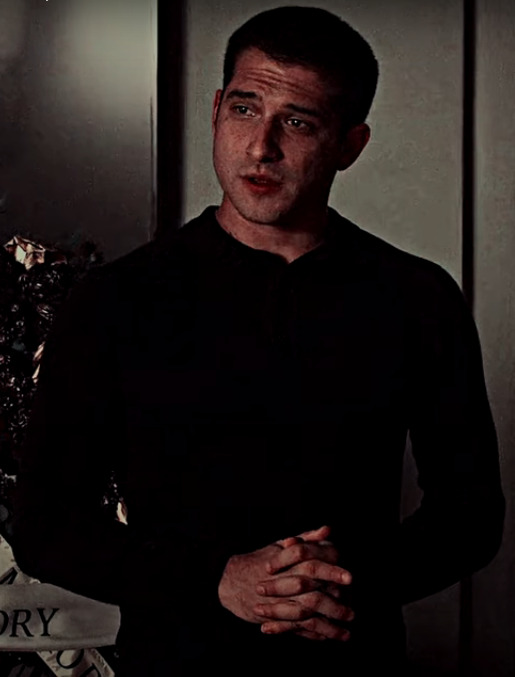
which is fine . He essentially had to speed run growing up so it is not crazy to imagine that he will try to keep things in the middle.
Parts : Scott.1
Jackson ; Derek ; Liam ; Mason ; Theo ; Stiles.1 ; Stiles.2
#scott mccall#teen wolf#fashion#menswear#for all 3 of you that were waiting for the next addition of these series#sorry for the delay#this time I have an excuse though#I was overwhelmed by work and uni#I am still#but finally collected all the images and had the desire to make a post#expect next post in 2026#jk#hopefully#thoughts and prayers#part 2/2#fashion analysis#teen wolf fashion
54 notes
·
View notes
Text
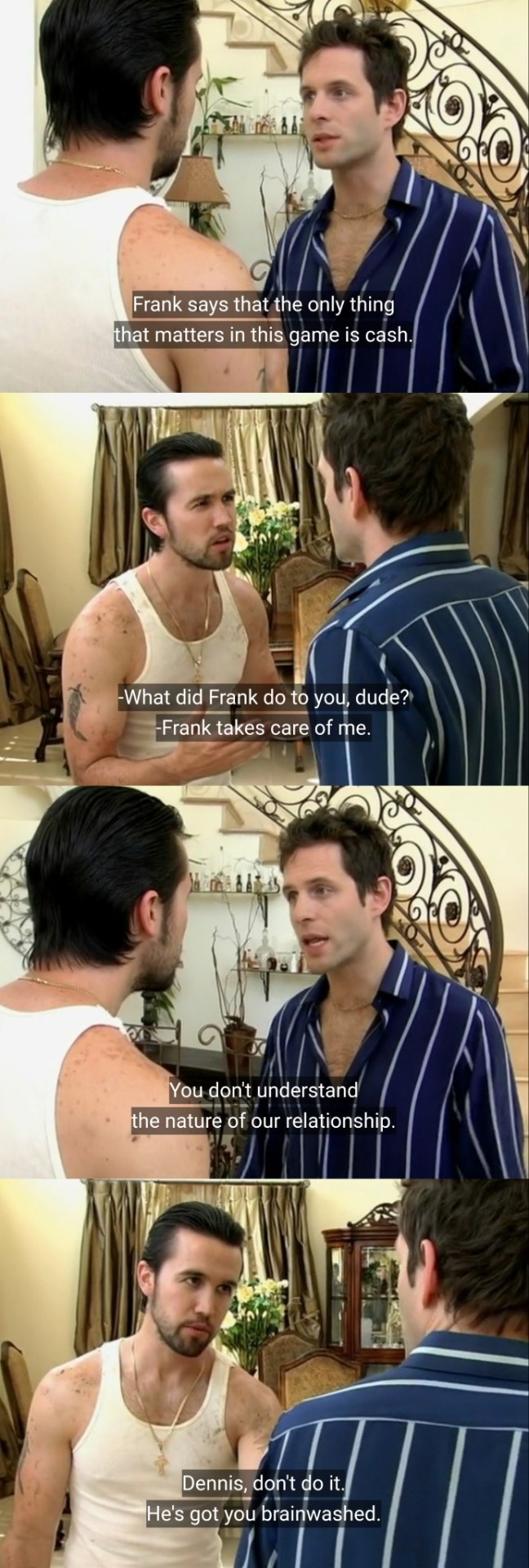
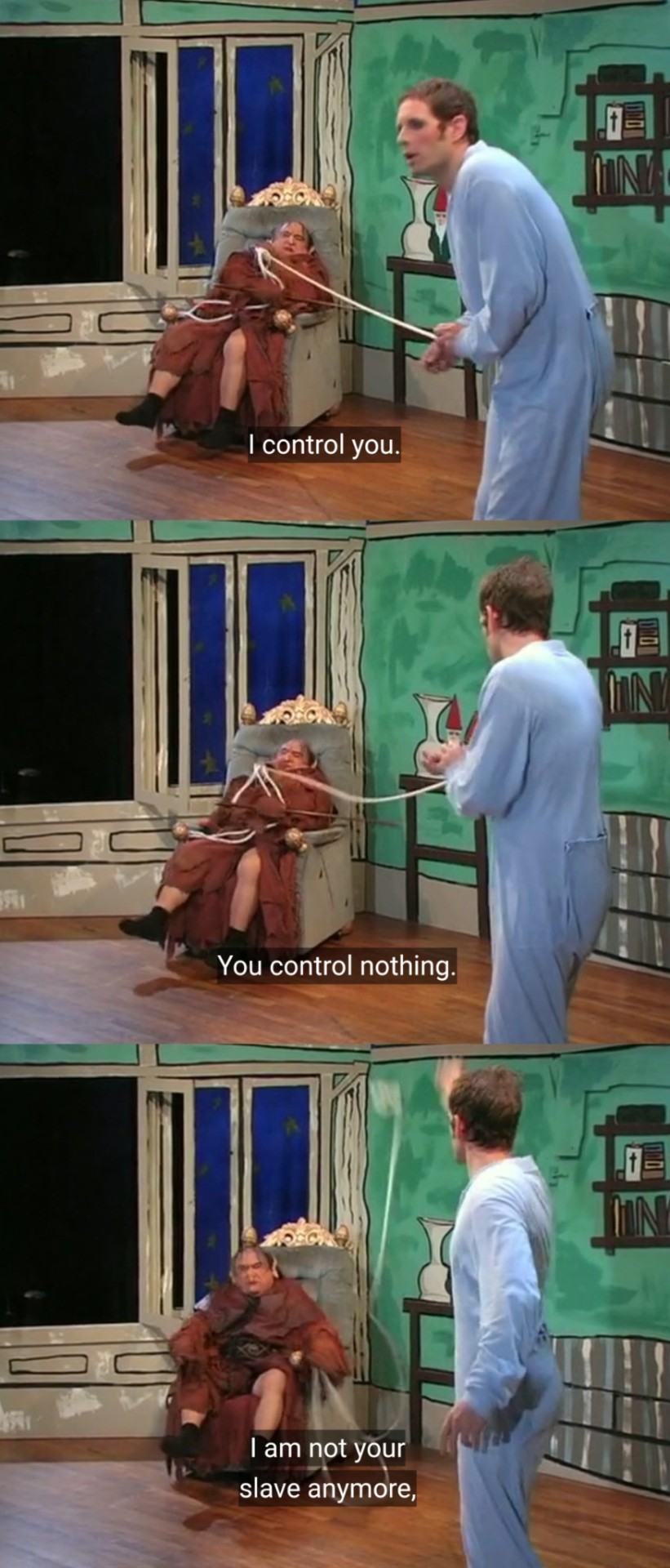
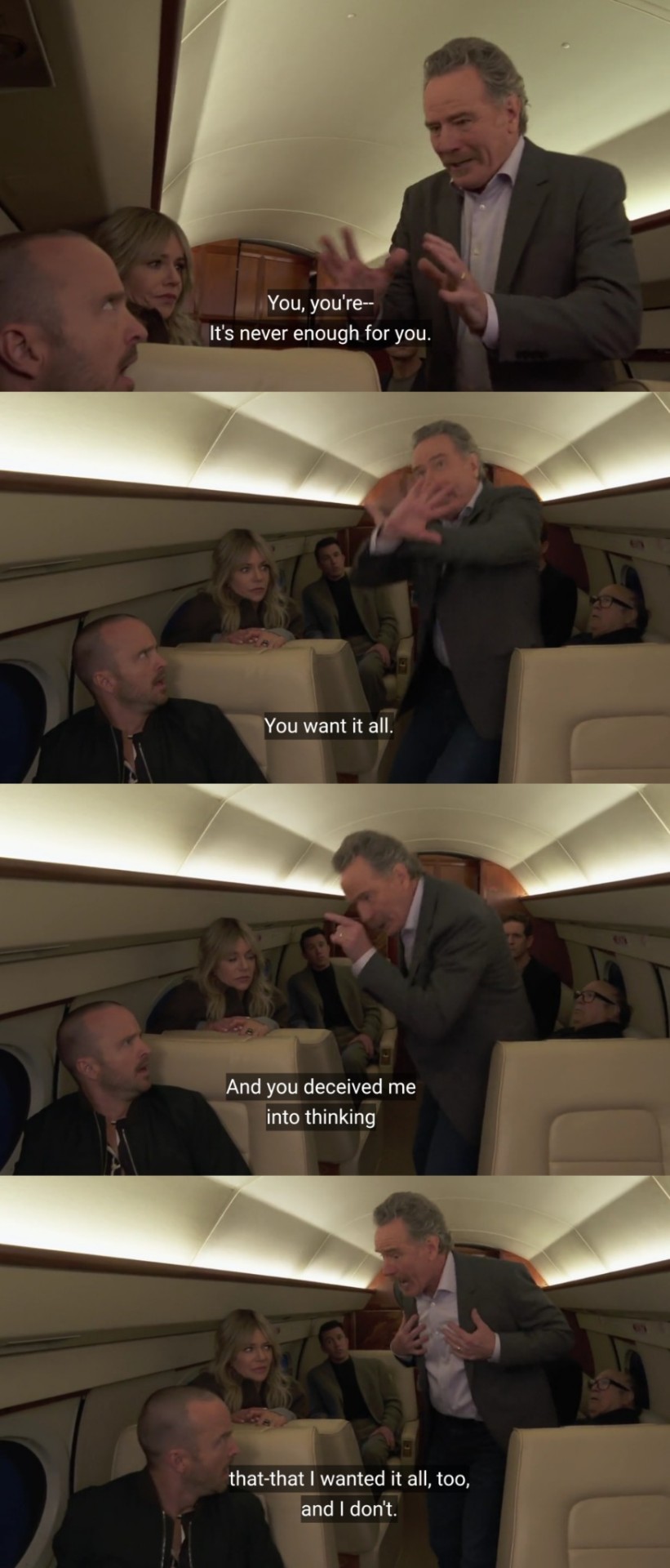


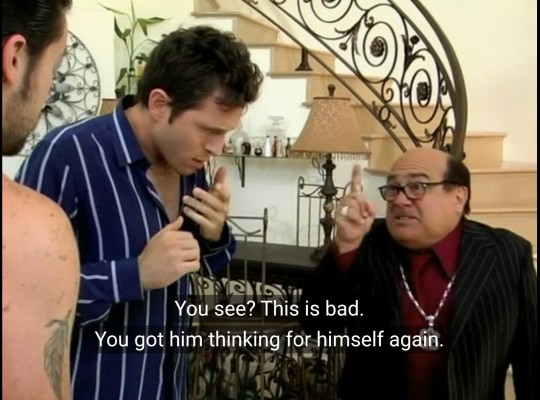
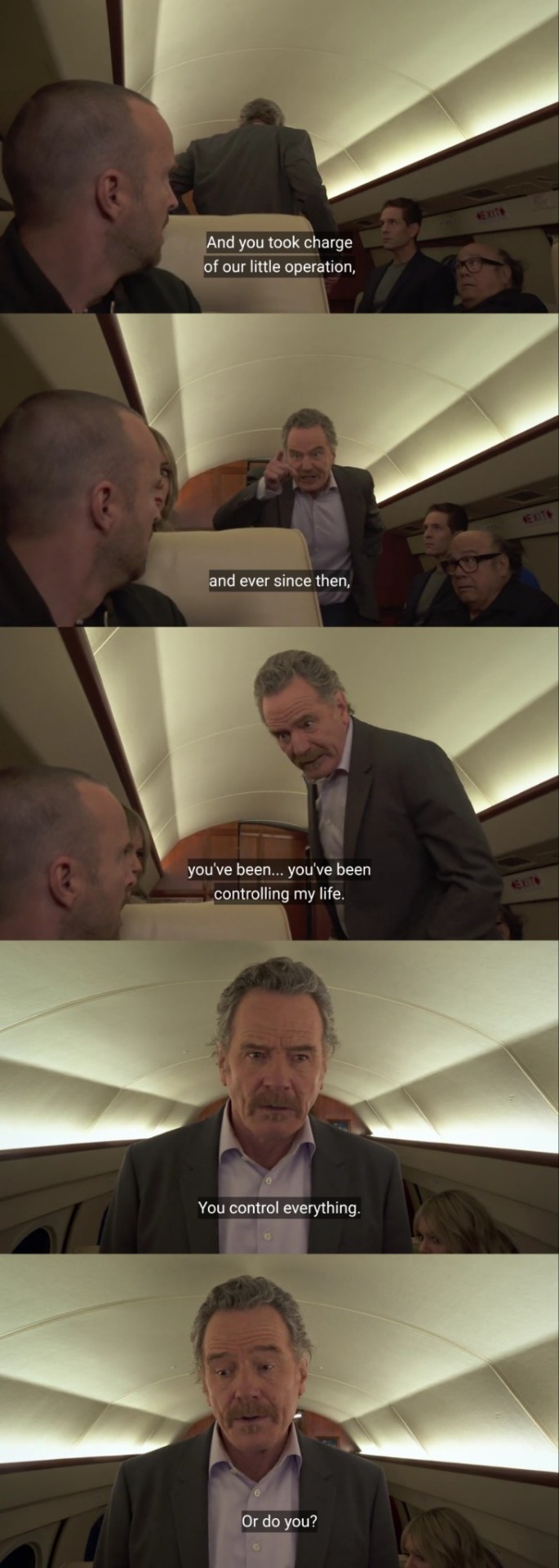
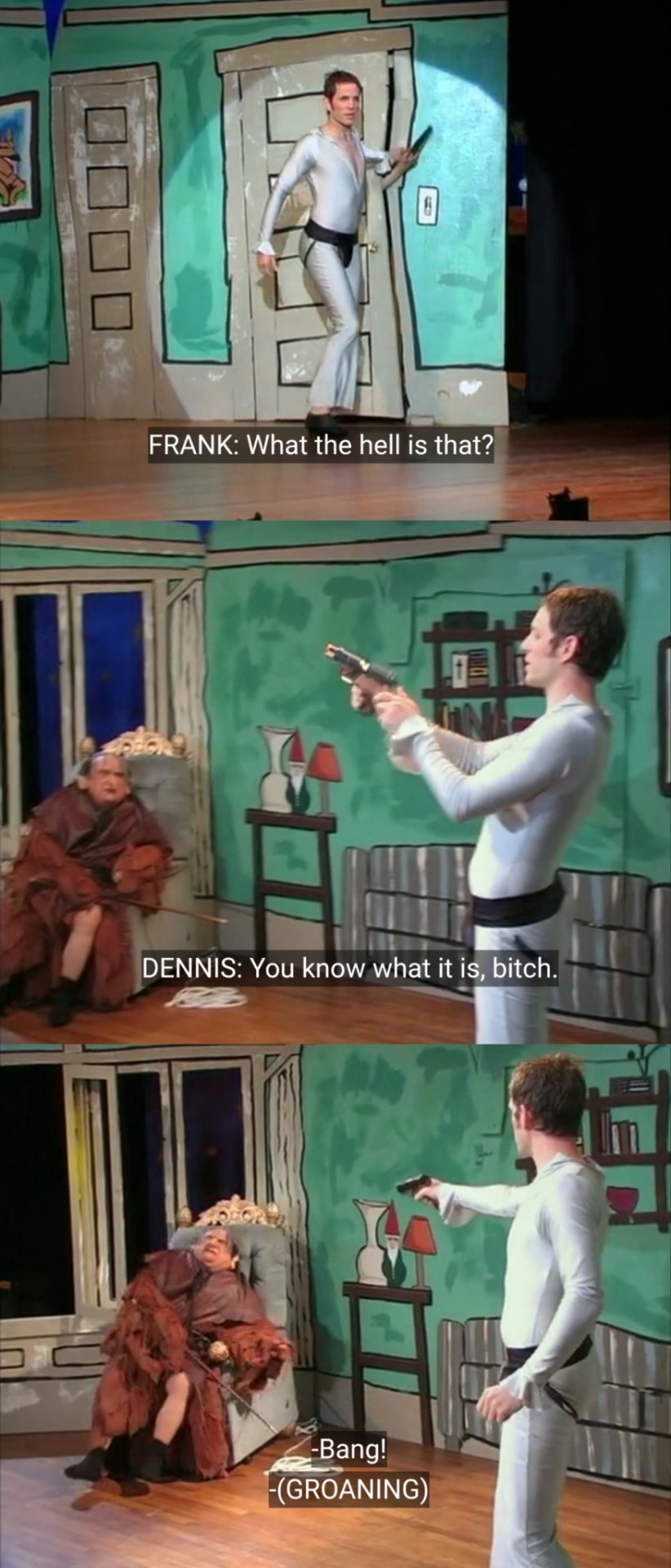
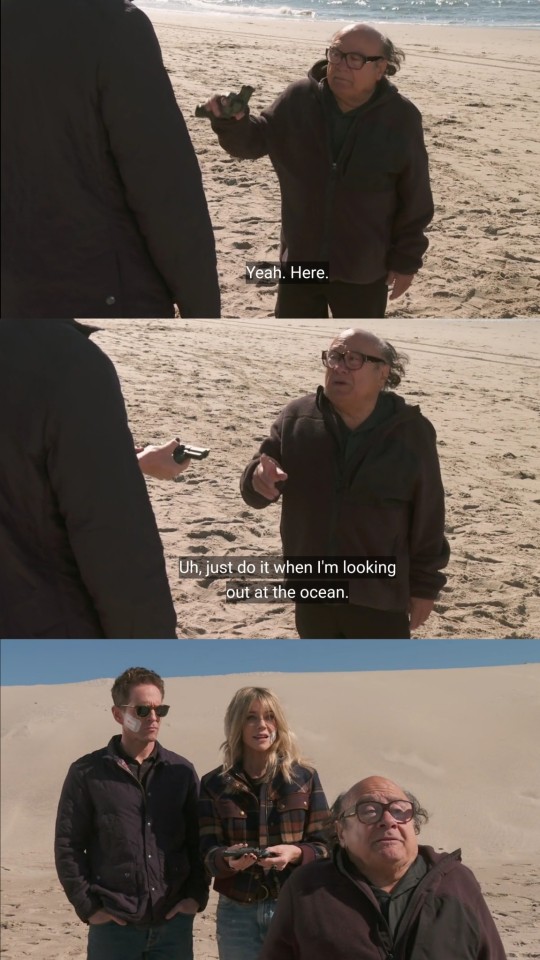
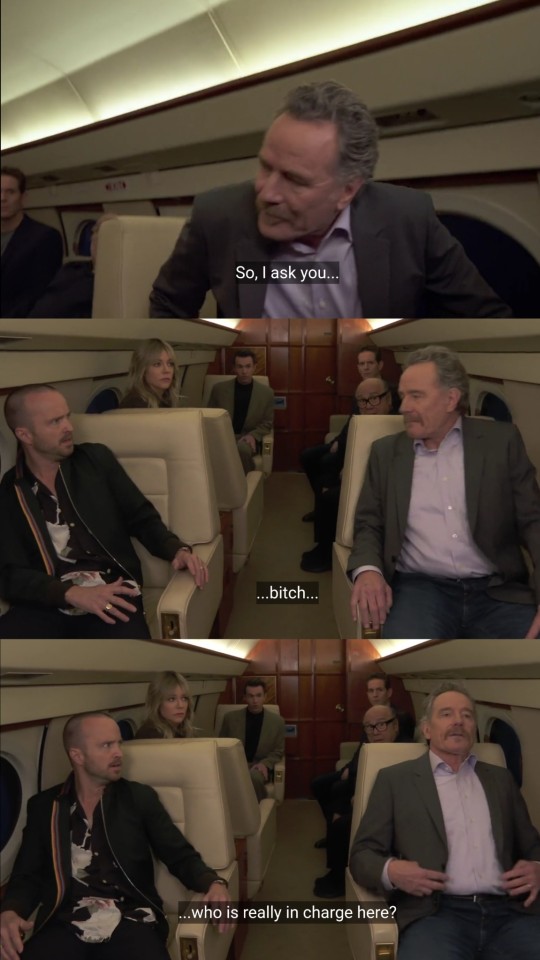
Charlie: "Hey, uh, Dennis, uh, get to Frank as fast as you can. I have Malcolm and his dad."
#iasip#s16 spoilers#it's always sunny in philadelphia#always sunny#macdennis#meta#analysis#s16#macden#AND BOOM‼️💥#i call this one ''the macdennis red herring''#tldr for people that dont get it. FRANK controls dennis. mac sets him free (gets him thinking for himself)#ALWAYS HAS BEEN.#i probably forgot some good lines to add but i feel like this is readable enough! if u have additions go off and add em#also im not claiming dennis is gonna literally shoot frank lol im SAYING he's taking back control#oh thats also why the plot in FVR was so important anyway. theres a reason dennis 'controls' mac then later controls frank#but that's more complicated i cant explain in tags also im not 100% set yet. but have this post for now#the real abusive relationship was frank and dennis all along ! 😊#father and son meta#idk how to tag this thread...#parallels
221 notes
·
View notes
Note
i now wanna hear your very long character analysis on how the drama machine affected alejandro
Yeah alright.
So I haven't actually watched All-stars, but I did skim through this video to get a feel for Alejandro's characterisation in it, since All-stars is the only canonical material we get from Alejandro post Drama Machine.
And by skim I really do mean skim; I was mostly looking out for signs of his imprisonment's influence, which for the most part seems to be as follows:
His legs fell asleep.
He developed a minor case of agoraphobia, mostly in the context of sleeping in open spaces.
His standards of human interaction have plummeted; something he's aware and accepting of.
Interestingly enough, he doesn't really seem to acknowledge the volcano itself (outside of an offhanded comment) or the injuries he got from the explosion. His focus is solely on his time in the suit, not what out him there in the first place. He even skirts over a memory loss issue, which could contribute to this.
I'll tackle these three points in more detail, and then give examples of how they can be developed into actual characterisation points instead of (for the most part) gags.
Number one; Leggy McLatin and the paraplegia scheme.
Alejandro's inadvertant and unintentional escape from the Drama Machine, and subsequent readmission into the competition (as himself, instead of as the machine) is, for the most part, entirely focal on the fact that his legs no longer work after his year of entrapment. It's a big deal - or, at least, as big of a deal as any injury or ailment can be in the context of Total Drama, considering that he doesn't miraculously get better in the span of an episode. Of course, we learn fairly early on that he's faking the paraplegia, but it's fairly heavily implied that his legs really were asleep initially (and that, in all likelihood, the massage we see him getting from an intern is what "wakes them up").
What's interesting about this particular plotline choice is that it would, realistically, be entirely feasable for Alejandro to have mobility issues after spending a year inside a robot.
Now, I'm no doctor, nor do I have any formal medical training, but I do know that not being able to move your body for an extended period of time results in a serious case of muscle atrophy. We see in canon that Alejandro was essentially locked in a seated position for the year; his arms, head and (assumedly) torso had place to move around, but he couldn't really stretch out his legs. This would explain the "weakness" of his legs in the first episode - i.e. their wobbliness, and the fact that they couldn't hold up Alejandro's body weight. The numbness he cites would be explained by poor circulation - again caused by him being sat down for a solid twelve months.
Or it could be nerve damage from the eruption, but given that Alejandro doesn't seem to have any long-term issues that stem from the volcano itself, it's unlikely.
So it can be assumed that the numbness of his legs was offset by the massage he gets after the first challenge. The masseuse kickstarts the blood circulation back into his legs, resulting in him regaining sensation in them - enough feeling to notice a crab pinching at his feet.
And, if I really want to reach into headcanon territory/realism, the reason he keeps up the "ruse" is because, despite having feeling in his legs, the muscles there are still fairly atrophied and he has a lot of trouble walking, let alone running, for extended periods of time. Though, as it stands, any long-term impact on his health would be entirely headcanon/fanon territory, due to the nature of the show itself.*
Then there's the psychological aspect to consider. Alejandro's a very prideful person by design - that's evident in both the way he portrays himself and the physical standards he holds himself to. Having use of half of his body stripped away from his is bound to be distressing, perhaps even traumatising. Hence why he tries to make himself as useful to the team as possible despite still recovering; he needs everyone to see that he's still capable.
Eventually his legs fully recover, because this is Total Drama and things like "realistic healing processes" and "lasting damage" don't seem to exist in-universe.
Number two; snug as a bug in a rug.
Alejandro's shown to have started sleeping in a sleeping bag throughout All-stars. He even canonically states that he needs to, because of his time in the Drama Machine. He cites that sleeping whilst srpawled out makes him uncomfortable, unspokenly referring to the fact that, for a year, he'd only had the option to sleep in an incredibly cramped position/environment.
This is interesting since, for the most part, you'd assume that someone held in close-quaters captivity would develop claustrophobia instead of a form of agorophobia, and yet Alejandro seems to have internalised the need to be in an enclosed space to sleep. Maybe it's symptom of just how long be was encased for - a year is a long time - or maybe it started out as claustrophobia, but the indefinate nature of his captivity morphed the initial fear into a twisted sort of coping mechanism.
It begs the question; what else can't Alejandro do in open spaces?
Is he perpetually uncomfortable with the openness of the outside world? Does he resort to hermiting himself into closed-off corners and enclosed rooms, just to feel a semblence of normalcy after he escapes the confines of the Drama Machine? Would he take to wearing tighter but more concealing clothing, just to immitate the feeling/pressure of being trapped in a too-tight enclosure?
Is his need for a snug sleeping space indivitive of him missing his isolated imprisonment?
Which brings us nicely into the third point.
Number three; long-term isolation and the effects thereof.
Alejandro explodes out of a glorified toaster and one of the first things he really comments on is Heather's off-putting personality and her facial hair. In a positive manner. He's so starved for human contact that he attaches himself to the first "friendly"/familiar face he sees, which in this case is Heather, and focuses on the aspects of her that make her human.
If he were a "weaker man", I have no doubt Alejandro would be clambering for attention from his team, mostly for proof that he's no longer completely isolated. It's a well-documented phenomenon; people who experience a long time in isolation, or who suffer through long periods of loneliness, become desperate for socialisation (and physical contact), to the point their immune systems and biological rhythyms (from circadian to infradian) start to deteriorate.
Realistically, Alejandro would've come out of the Drama Machine a desperate and sickly mess, riddled with insomnia and paranoia and incredibly touch-starved. But, as established, the show isn't exactly true-to-life when it comes to things like this, so...
As it stands, the fact that he emerged from his prison and immediately jumped back into his charming persona attests more to the fact that his flirtatious act is so deeply ingrained into his psyche than it does to his mental wellbeing. It could be argued that he's using the same act/mask/persona as a tether to his old self and an anchor to normalcy, as he'd likely crumble into an inconsolable mess without the scaffolding of his "TV personality" keeping him upright (metaphorically of course, as Alejandro is in fact not upright in the show. He's upside down for the majority of his time on All-stars).
Or maybe he's just built different? Who's to say.
We don't exactly know what went down during his year away, so it's impossible to make any concrete statements as to whether Alejandro was afforded the luxury of other people's company, or if he really was kept 100% isolated in the machine. The only thing we do know is that he likely had access to a phone, though didn't have the capability of using it without assistance, since he calls Heather out for never trying to contact him but also states the impossibility of him doing the same in turn.
Number four; lava damage and the lack thereof.
It's sort of explained during his scene at the end of World Tour, but Alejandro's whole "being trapped in the Drama Machine" deal - alongside being a parody of the scene where Anakin Skywalker is first put into the Darth Vader suit - is stated to be for his own benefit. He's essentially being locked away into a healing suit. Again, just like Anakin - they both even sport similar burn wounds.
He mentions at the beginning of All-stars that he doesn't really remember being put into the machine, and it's safe to assume that the majority of his time in the contraption is likely fuzzy to him as well; being fully concious of complete isolation for a whole year would be enough to drive anyone completely mad, and Alejandro is decidedly not insane (for the most part). Ergo, it's also a safe assumption that the inner mechanisms of the Drama Machine act as a sort of stoporous healing chamber, keeping Alejandro semi-concious and healing his various lava burns over the course of his concealment.
Sort of like a medical coma. Inside of a robot. A portable medical coma.
The "healing properties" would also justify why Alejandro's whole body hadn't deteriorated from muscle atrophy, or developed any (visible) burn scars from his stint in the Hot Sauce. Of course, as far as burn scars go, unless they're significantly deep they do tend to fade into near-invisibility over time. That, paired with the ~magical healing properties~ of his confinement, likely resulted in his lava burns scarring over into insignificance.
Then again, I once again have to take cartoon logic into account - the show itself likely just didn't consider the semi-realistic consequences of a year of entrapment, and wanted Alejandro to be near-enough the same character he was at the end of World Tour before the consequences™.
The main point here is this; Alejandro doesn't seem to remember the majority of his injuries following the volcano eruption in the World Tour finale, or if he does he's had a year of semi-conciousness to work through his thoughts and feelings on the matter, and as a result he doesn't seem to carry any (reasonable) trauma regarding lava, volcanoes, or other related stimuli.
He does, however, retain some "quirks" from his time in the machine.
Number five; an overview.
Alejandro comes out of the Drama Machine with a surprisingly little amount of visible trauma, both in terms of physical damage/scarring and observable mental changes.
He developed a very minor case of agoraphobia, spurned on by him becoming accustomed to existing in a very small, very cramped space, but otherwise attunes himself to the outside world incredibly fast.
Is this probably related to his social training, as a diplomat's son, and his heavy reliance on a "suave and charming" persona. He's likely battling with a lot of internal issues throughout the season, but squahing down his inner turmoil under his determination to win, which explains how/why he falls so easily into his scheming mindset - it, in and of itself, is a coping mechanism, though not a very healthy one.
*The paralysis of his legs was in all likelihood genuine, and a result of poor circulatory issues and minor muscular atrophy, which was almost immediately treated by the masseuse intern after the first challenge. Realistically (and how many times have I said that word) he'd have some lasting weakness in his legs, and maybe require the use of a mobility aid and/or physiotherapy. This is not the case, because... Total Drama.
There are subtle signs of the mental impact of his imprisonment, mostly in his immediate attachment to Heather (despite her taking away his reproduction privileges the last time they spoke, and her being Heather) and his innate need to prove himself as useful/capable despite his gameplan riding on him appearing pitiable and unthreatening (due to his "sleepy legs"). He's so starved for social interaction and validation that his actions are directly contradictory to his gameplans.
Though in the case of his Heather attachment, he could just be like that. He was also fairly infatuated with her in the latter half of World Tour, and the pineapple scene speaks for itself.
In conclusion; Alejandro is either completely goated and (for the most part) just shrugged off the trauma of being trapped in a tiny box for a year, or he was already so traumatised that the imprisonment was just another needle in his haystack of turmoil.
#I'm partial to the second conclusion myself. Alejandro shrugs off additional trauma because he's already hit his quota. He's immune.#Vaccined against The Horrors thanks to his piss-poor homelife and whatever else he experienced pre-TD.#From a strickly canonical standpoint he gets off pretty lightly - most of the other antagonists are punished much worse by the narrative.#If we're taking headcanons into account? Or even a modicum of realism? He's like 50% invisible scar tissue and 50% PSTD.#I can't really think of a way to justify him NOT being scared of fire/lava without taking the “I barely remember anything” line and--#running with it. Giving him a little dissociative amnesia to excuse his lack of rational fear.#... That DOES open up an avenue of him rediscovering his volcano-based trauma at a later date...#It's actually a little bit shocking that his character remained pretty much the same between seasons. He was locked in a tiny cage--#for a YEAR and when he broke out he was IMMEDIATELY back to his old tricks. It's almost iconic.#total drama#td alejandro#character analysis#long post#replies
53 notes
·
View notes
Text
I thought it would be fun to compile all the tutu character themes into one post, especially for anyone who’s not as familiar with the music! I’m almost certainly missing some so please send in suggestions and I’ll add them to the post.
Princess Tutu Character Themes:
Duck:
Tchaikovsky’s nutcracker overture. Fun fact she sings her own theme in the first episode!
youtube
Princess Tutu:
Tchaikovsky’s Waltz of the Flowers
youtube
Fakir:
Beethoven’s Coriolan Overture (mainly when he’s either in a fight or antagonizing mytho or Duck):
youtube
Rimsky-Korsakov’s Scheherazade: the Story of the Kalendar Prince (the main theme of episode 12, which plays as he and Duck search for Mytho. It’s also used in season 2 mainly in reference to his writing).
youtube
Princess Kraehe:
Erik Satie’s Gymnopedie No. 1 (plays most notably when she first transforms into Kraehe in episode 7)
youtube
Mytho:
Tchaikovsky’s Dance of the Sugar Plum Fairy (plays during our very first introduction to mytho! If you see him dancing a solo 99% of the time it’s going to be to this song)
youtube
Richard Wagner’s Siegfried Idyll
youtube
Richard Wagner’s Siegfried’s Funeral March (Raven Mytho’s Theme)
youtube
Drosselmeyer:
Tchaikovsky’s Nutcracker March, often altered to sound more foreboding
youtube
Miss Edel:
Delibes’ Coppelia: Musique des Automates. Notable because it all but spoils that she’s a puppet for those familiar with the plot of Coppelia
youtube
#do you love the color of the princess tutu character themes#I could go into more analysis on why they chose these songs but I don’t want the post to get toooooo long#princess tutu#I’m sure someone has done this before but I haven’t been in the fandom that long and I haven’t seen a post#so I’m sorry if it’s already been done#thank u to bazoolium for telling me about Siegfried idyll and Siegfried’s funeral March#I didn’t do the minor characters like femio and Mr cat since I hit my video limit#but I’m open to doing it in an addition
65 notes
·
View notes
Text
Hands down, Give is one of Sleep Token's yearn-iest songs. Ever. It's not on par with TLYW, Jaws etc. (because that's a whole different layer of Sleep Token's yearning onion), but it's got a kick to it.
When I say that song is the epitome of desperate, I mean it.
Without thinking about it too much, the first time I listened to it my first thoughts were 'ah, okay, wanting to give all for your lover and be able to trust them, got it', but then I thought about it a bit more.
Like with all Sleep Token songs, it has a bit of an eerie undertone, which borders on slightly obsessive, depending on who you're talking to, with the lyrics. We have "I picture you when you are all alone", "I am the shadow, you're a passenger", "I'll be the limit of your light again" and, of course, "give me all that you can give" with "and if you want to give me anything, then give (give in again)".
Vessel is describing himself as literal darkness; he's a shadow in the gloom and whoever this is is a star glowing in the darkness. A light he aims to dampen because he wants a taste of that light. A taste of them.
However, it's this desperation for attention that gets me. "Give me all that you can give" is an easy example; he's desperately giving all he can possibly give in hopes of getting the same, or more, back. It's repeated over and over, half begging half demanding with soft dulcet tones and promises that he'll be watching for their enemies, to let them know that they contend with him etc.
Give becomes this two-faced thing of someone giving with all their might to someone who is afraid to trust, bringing up empathy from us, and someone who will not accept anything except everything. It's this sexually charged fight between who is a victim (or if there really is one here) and who is the abuser.
Further, to "give in" is to 'cease fighting or arguing; admitting defeat.' It's something primal and angry hidden under, or rather, mixed with passion, and it's incredibly well hidden.
#I know there is a bit of a divide between people who say it's just a passionate love song between someone who gives their all and is ->#only asking for the same back#Vs people who have the same ideas as me#so this is just my opinion!#would love to see anybody's additions or arguments for the other side though!#it does quite admittedly have me giggling and kicking my feet#'I will be watching for your enemies to let them know that they contend with me' had (still does tbh) me hook line and SINKER#and don't get me started on how he growls 'fibre from' in 'I'll tear the fibre from the filament'#it's this possessiveness and annoyance that's immediately hidden under 'I just wanna taste you better'#it's all these hidden little things that when you think twice about it it clicks#as per usual shout-out to Vessel for doing whatever the fuck he does with lyrics because I eat it up every time#give#give (song)#sleep token#st#sleep token analysis#sundowning#sundowning (album)#lyric analysis#mel's rambles
69 notes
·
View notes
Text
Ep 5, rage, and time
This was a FASCINATING episode. We’ve got a lot more questions than answers right now— about exactly the nature of Fig’s curse (we know it hopped to her from Gilear, but how does the armor of pride play into it), the exact nature of what happened to Cassandra, and what kind of big bad god (???) was talking to Kristen after the fight— so I don’t have a snappy thesis about this week’s ep. But I have some themes buzzing around my head like persistent flies. So let’s talk about them.
I saw someone earlier point out that rage and anger seems to be a dominant theme of the season, after Kristen got advantage for leaning into anger at her parents, and I think we know for sure now that that’s true. I refreshed myself on what happened to Lydia— she sealed a dangerous demon inside a soul gem and embedded it in herself to keep the demon from escaping. She was in a permanent rage to keep herself alive, and the impact of that disabled her. As a disabled fan I have always loved this rep, because the gem functions like a chronic illness, and I personally have used anger at the medical system and the ableist world to survive being chronically ill. (She also refused to have the gem removed and risk releasing the demon, which is a great refutation of the magical cure trope). Anger is a dirty fuel though, and if you burn too much of it you’ll end up burning yourself, and compromising your own mental health, in the process.
That reminds me of the kind of things we were circling from the beginning of the season— burnout, exhaustion, being past where you can fight. And if people heap enough stress on you (from schoolwork or otherwise) a kind of natural response to that is to break into rage at some point.
I don’t exactly understand the mechanisms of the star bursts that originated within Cassandra and then made her monstrous. Were parts of her anger embedded in them like the demon was in Lydia’s soul gem, and then when they re-entered her they turned that rage into something uncontrollable? Why did they affect Kalina that way and why did she mention Ragh’s name? I’m really not sure, although I do hope that this means that Lydia will play a larger role this season and we’ll see more of her and her cool wheelchair soon.
The other things that’s bouncing around my head is the theme of time (a recurring Elmville theme; chronomancy is the greatest magic of all after all). I think this season is concerned with time, and what it means to run out of time, even more than freshman and sophomore year. We have Arthur and Ayda traveling through time and the quadrangle situation. Now we have the Synod clock and a verifiable time loop (side note: I did ABSOLUTELY burst out laughing when Brennan exasperatedly said “anyone can roll arcana to understand time loops” when the PCs were confused, like GOD haven’t you all seen this in a million science fiction stories by now??? A deeply relatable moment when the players aren’t picking up the lore you’re putting down). But maybe more importantly, we’re seeing the consequences of not having enough time this season, or maybe what happens when the clock keeps running after the adventure is supposed to be over. No one has enough time to do all the assignments on their plate. Everyone missed out on fun, school planning, and relationship stuff over the summer because they had to be fighting the night yorb and didn’t have enough time to go home. (Also, side note, the night yorb turned everything to night therefore eliminating a way we have to tell time. No more days, just one long bleed of an adventure). And everything we’re doing right now feels like we’ve somehow hit the end of time and then kept going— Cassandra was never supposed to turn back into something akin to the nightmare king again. Kalina was never supposed to come back in the same form and taunt Riz again. The whole thing feels like a lesser, diminished time loop. Even the main high school antagonists, the rat grinders, are like a weird version of the bad kids who are stuck just looping over and over again, grinding out xp and repeating themselves infinitely.
I don’t really know how these two themes are going to hook together yet exactly, but I have a feeling they’re going to. Whoever was on the phone with Kristen feels like a hook for underlying plot, if not an outright big bad, which I honestly wasn’t sure we would get at all this season. So I’m gonna be so interested to see how these themes coalesce as the season goes on.
PS- I think The Seven is also extremely concerned with time (especially that sequence in the penultimate episode, which is my favorite in all of D20 I think. No spoilers if you haven’t seen it, but it is truly transcendent), and especially what it means to grow and change. I love that this theme keeps popping up in Elmville- it’s such a lovely frame for the kind of coming of age stories that get told there.
#dimension 20#d20#fantasy high junior year#fantasy high#d20 fhjy#episode analysis#my meta#if anyone has additional thoughts on these themes I would love to hear them!
55 notes
·
View notes
Text
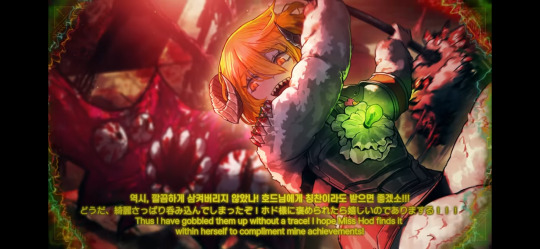

hey don, nice void dream ego gift you got there
update!! she has fragment of the universe’s too! (little hearts next to the meat lantern lure on her chest)
i also found out the new outis id has bloodbath’s ego gift which is. concerning for several reasons
#limbus company#sure i’ll main tag that. i think it makes sense for her#w the whole impossible dream thing#this could be a mostly nothing addition but i really like void dream so i WILL look into it#to me it’s a Hong Lu abnormality but it is also VERY much a don abno and we know.#VERY little about don. it’s kinda fucked up#but yea she’s got sheep horns from void dream and meat lantern pointy teeth#assigned caretaker of kinda lumpy white things ig#i haven’t looked too into meat lantern but that’s also rly don quixote. i loveee chatactwr analysis thru shit like this#pachiposting
63 notes
·
View notes
Text
ok, i know i've done this analysis before though it has been an addition to another post of mine and most people only see the first post - soooo i'm gonna list the main points on here again
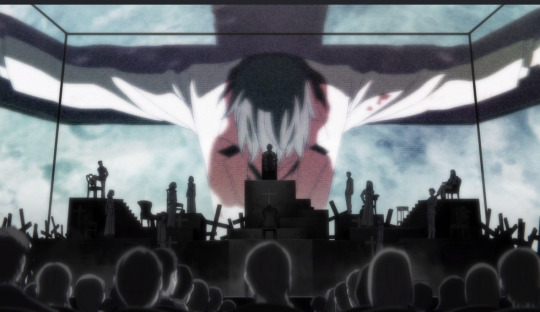

ok first i was like - this looks like fyodor, right? like the hair, the wound, the white clothes, and ofc the fact that he is nailed to a cross. fyodor sees himself as a kind of messiah, so it would make sense for him to think that he's dying for the sins of others. he also lies his actions and his life into god's hands as in "he's doing what god would want". come to think of it, fyodor's death might be fyodor's way of "cleansing the earth of sin" but i don't know if he sees it that way. anyways, i'm going to explain now why i think this is fyodor up there and why i think this scene already foretold fyodor's death.
now, there's so much to find in the light novel. we see fyodor at the end of the untold origins adaption and this might be a very obvious hint that fyodor's death is foretold in untold origins already. but the stage play reveals a lot, too.
first of all the stage play's summary is "an angel who murders", specifically an angel that kills their own kind.

that sounds an awful lot like fyodor doesn't it? he wants to kill all ability users after all. Now, i see fyodor in the murderer here, but i also see him in the victim bc of the following quote.

fyodor has been stabbed (not with a knife but yk), he fell with the helicopter, and he was poisoned. The heavy water could possibly count as strangulation but that might be me reaching. while most of this could also connect to dazai, he was shot by fyodor, not stabbed. it could potentially also relate to sigma, who fell with the elevator, was strangled by teruko and one could potentially say he was poisoned by fyodor's memories. also there is nothing unique about the ways they are murdered. fyodor sees sigma as an ordinary man. i'm kinda torn on this.

"if it was an angel, they would use the devine blade in their hand" like come on...
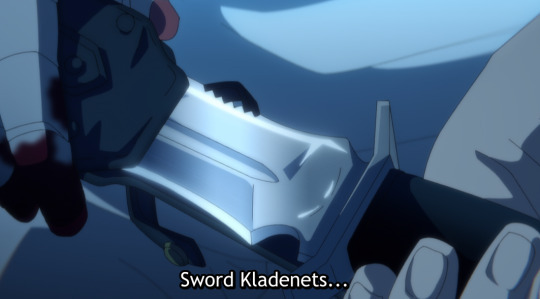
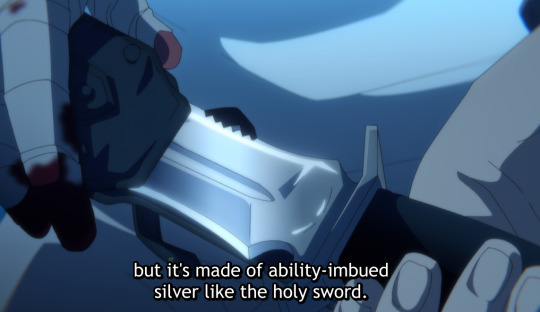
it's said in the stage play that there are 12 victims. someone in the other post mentioned that there were 12 apostles, though i don't know how this would make much sense in this context other than the connection to fyodor, that sees himself as jesus 2.0
ofc ofc there's also the judas x jesus dynamic between nikolai and fyodor here. nikolai being the one that wants to kill fyodor and "hires" dazai to do just that. though ofc nikolai regrets it immediately. also if we connect the 12 apostles that would be the 12 victims of the play or rather of fyodor, nikolai would've been beyond those victims, too. he was supposed to die.
also, i know this is about murakami BUT "the killer became the victim"!!!

idk if i have a final point here other than "look! this is connected!", but thank you anyways for everyone that commented on the last post, i included a lot of your points as well (if you want to be tagged, i'll do that ofc :3)
thank you for reading!
#thank you for reading that and thank you again to everyone rbing that last post#it just bothered me that only the first post was being rbed and idk i wanted this to have more presence lmao#if i made any mistakes or if i missed anything gladly lmk or add onto this i'd love to hear additions <3#bsd analysis#bsd fyodor#bsd spoilers#bsd season 5#bsd#uh yea idk if it was necessary to write this all out again but here we are xD#it's been only 2 months since i uploaded the other post??? this is crazy!
54 notes
·
View notes